#none of which I think serve the story on a base level
Explore tagged Tumblr posts
Text
What I don't understand is the need to have made Percy know all of the myths. It's unnecessary. A familiarity makes sense, he studied it in school, and having Sally tell him stories is sweet, but that doesn't mean he can't be confused? In the books he mentions he struggles with some myths and names because his dyslexia makes it hard*, some names can be similar but are completely different figures. It's also mentioned that the more a demigod knows about the mythical world the easier they are to find. Percy's ignorance makes sense, and is important for his safety (hence why he's lied to by Brunner and Grover about Mrs Dodds). When comparing the wide breadth of myths covered in the books, not knowing exactly who someone is makes more sense than immediately knowing exactly who and what is going on.
A main theme in the books is that intelligence comes in many different forms, especially because the protagonists are both neurodiverse in more than one way. Being book smart isn't the end all be all of intelligence and both Annabeth and Percy show how clever they are in different ways. Book Percy was never made to seem stupid because he didn't immediately know about the Lotus hotel or Procrustes for example. Even Annabeth was fooled by them. That's how the myths worked in the pjo verse, they're modernised and there's the mist it's perfectly fine for them to be tricked. Hell, in universe the monsters want them to be tricked, that's the point. Percy's intelligence and quick thinking are shown not via immediate fact retrieval, but through how he manages to manipulate the situation for the better. He's perceptive, and is good at figuring things out**. He's still incredibly intelligent, it's just shown in a different way.
One of the joys of the original series was learning about the myths alongside Percy. The mystery and the unique modernisations of the stories. So it's a bit of a slap in the face to have the show's narration behave like everyone would know what any myth, that it's so obvious they don't need to explain how or why the protagonists know exactly what's coming before it has a chance to. Again: I'm aware that Annabeth has been at camp for years, but there's a massive amount of myths to know and they have adapted to the modern day. They might not be immediately recognisable, or the mist might be too strong etc etc. Not knowing something doesn't mean you're dumb.
The show, however, doesn't give the kids chances to mess up. They know everything immediately, or far too quickly. There's no room for learning or acknowledging the complexities of the pjo-universe. Them recognising Medusa straight away, fine, she's a pretty well known myth, and Percy is named for Perseus, the familiarity makes sense. The lotus hotel, less so, it's not that well known of an aspect of the Odyssey, but they are looking for a god so being suspicious of their surroundings is fair enough I guess? (Though coincidences can be coincidences. The only similarity that the island and the hotel have is a lotus, a very common flower?) There are so many things that happen in the Odyssey that not specifically remembering this tale would've been fine. But Procrustes? Immediately? Really?
What purpose does it serve to have the kids know who they're facing straight away? To the plot. Considering that the myths are intertwined with the modern, it would make sense for them not to know things, or at least not immediately recognise them as monstrous/magical, because not everything is?
I don't know, I just feel like taking the opportunity to learn away from both the audience and the characters cheapens the story and makes it less interesting. (Representations of intelligence aside. Because if I talk about that I'm going to call someone Ableist and I don't want to get into that right now. I will say though that even the movie had more overt dyslexia and adhd rep so...)
Not only that, but narratively, it's not working. There are no stakes to the situations the kids get into, or there are but certainly not to the same degree. It's just. Odd.
All that to say that the decision is a weird one and one that doesn't serve the plot to boot. That is all.
Anyways have pictures of my copy of TLT for support, please ignore my dissertation tabs.
* / **
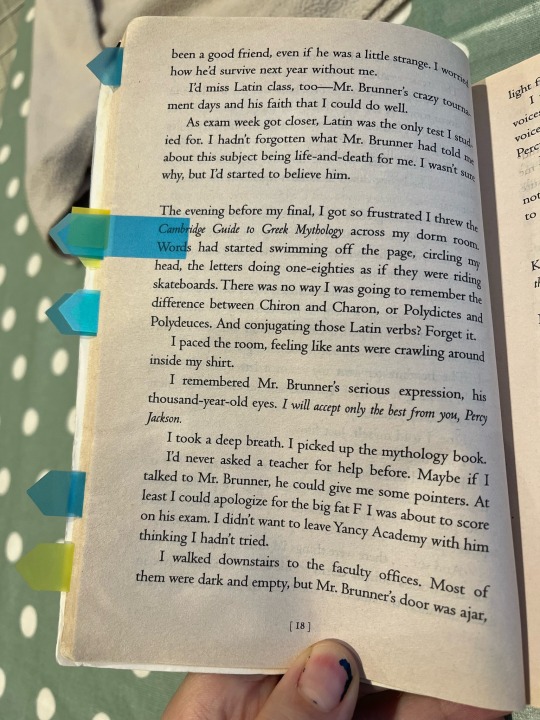

#pjo tv crit#I got into pjo bc I was neurodiverse and into myths and I still learnt about myths I didn't know ?? I'm just genuinely so confused by this#the show has made a lot of weird decisions#none of which I think serve the story on a base level#if they had changed it but it still worked narratively I don't think I would have cared as much but it genuinely doesn't work so..:
21 notes
·
View notes
Text
ISAT and Ludonarrative Harmony: Combat is a Storytelling Tool
Or: How Siffrin is stuck in the endgame grind, forever
Please Note: This is primarily aimed at an audience that already played In Stars and Time, because I am bad at explaining things, and it's good to already know what the fuck I'm talking about. I tend to only bring up game elements as I want to talk about them.
Spoilers for.... all of ISAT! Especially Act 5!
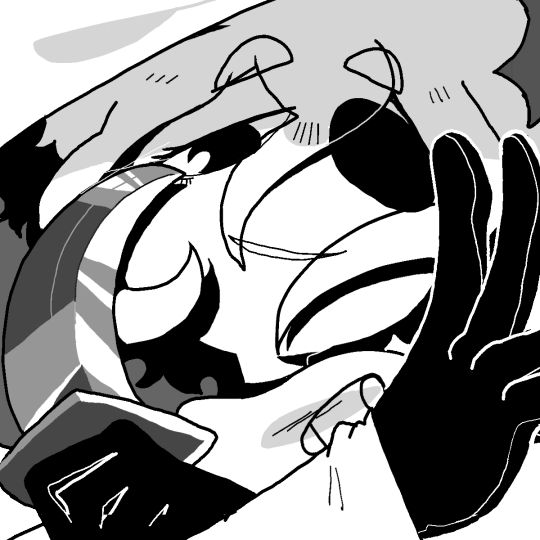
(image to show how i feel posting this and as an attention grabber over my wall of text)
To pull a definition of ludonarrative harmony out of a hat, game writer Lauryn Ash defines it as follows:
Ludonarrative harmony is when gameplay and story work together to create a meaningful and immersive experience. From a design implementation perspective, it is the synchronized interactions between in-game actions (mechanics) and in-world context (story).
It is, generally speaking, how well game mechanics work hand in hand with the story. I, personally, think ISAT is an absolute masterclass of it, so I want to take a look at how ISAT specifically uses its battle system to emphasize Siffrin's character arc and create organic story moments. I want you to keep this in mind when I talk here.
So, skills, right? If you've played any turn-based RPG, you know your Fire spells, your "BACKSLASH! AIRSLASH! BACKSLASH!" and the many ways to style those.
Well, what does casting "Fire" say about your character? Not all that much, does it? Perhaps you'll have typical divisions. The smart one is the mage, the big brawny one is your tank, the petite one's the healer. And that's the barebones of ISAT's main party, but it's much more than that.
Every character's style of combat tells you something about them. Odile, the Researcher, is the most well-travelled and knowledgable of the bunch. She's the one with the expertise to keep a cool head and analyze the enemy, yet also able to use all three of the Rock-Paper-Scissors craft types.
To reflect her analytical view of things, all her skill names are just descriptive, the closest to your most bog-standard RPG. "Slow IV" or "Paper III" serve well to describe their purpose. The high number of the skills gives the impression there were three other Slow skills beforehand - fitting, considering the party starts at level 45, about to head into the final dungeon. She's also the oldest, so she's the slowest of the bunch.
Isabea, the Fighter, has all his skills in exclamation points. "YOUR TURN!!!" "SO WEAK!!!" "SMASH!!!" they're straightforward, but excited. He's a purposefully cheerfull guy, so his skills revolve around cheering on his allies. He's absolutely pumped to be here, and you see that from his skill names alone.
Mirabelle, the Housemaiden, is an interesting case. She's by all means the true protagonist of this tale - She's the one "Chosen by the Change God," the only one who survived the King's first attack, the only one immune to his ability to freeze time, the only dual-craft type of the game - just a lot of things. And her skill names reflect that facade she puts on herself - she can do this, she can win! She has to believe it, or else she starts doubting. This is how you get "Jolly Round Rondo" and "Mega Sparkle Heal" or "Adorable Moving Cure." She's styled every bit a sailor scout shojo heroine, and her moveset replicates the naming conventions of "In the name of the moon, I'll punish you!"
Even Bonnie, the Kid, who can't be controlled in combat, has named craft skills. And they very much reflect that Bonnie is, well, a kid. "Wolf Speed Technique" or "Thousand Blows Technique" are very much the phrasings of a child who learned one complicated word and now wants to use it in everything to seem cooler than they are, which is none, because they're twelve.
Siffrin's skills are all puns.
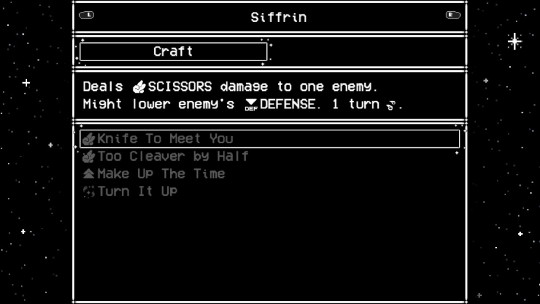
You have an IMMEDIATE feel for personality here. Between "Knife to Meet You!" and "Too Cleaver by Half," you know Siffrin's the type to always crack a joke no matter the situation, slinging witticisms around to put Sonic the Hedgehog to shame. It's just such a clever way to establish character using a game mechanic as old as the entire history of RPGs.
This is only the baseline of the way the combat system feeds into the story, though.
The timeloop, of course, feeds into it. Siffrin is the only character who retains experience upon looping, whereas all other characters are reset to their base level and skills. And it sucks (affectionate).
You're extremely likely to battle more often the earlier in the game you are - after all, you need the experience (for now.) Every party member contributes, and Siffrin isn't all that strong on their own, since they focus on raw scissor type damage with the addition of one speed buff. (Of course it's a speed buff. They're a speedy fucker. Just look at him).
At first, the difference in level between Siffrin and the rest of the group is rather negligible. Just a level or two. Just a bit more speed and attack. And then Siffrin grows further and further apart. Siffrin keeps learning new skills. He gets a healing skill that doubles as an attack boost, taking away from both Mirabelle's and Isabeau's usefullness. He gets Craft skills of every type that even give you two jackpot points instead of one - thus obliterating Odile's niche. Siffrin turns into a one-person army capable of clearing most encounters all on their own.
Siffrin's combat progression is an exact mirror of story progression - as their experience inside the loops grows, they also grow further and further away from their party. The party seems... weaker, slower, clumsier. Always back at their starting point, just as all of their character arcs are reset each loop. Never advancing, always stagnant. And you have Siffrin as the comparison post right next to them.
I also want to point out here a change from Act 2 to Act 3 - Siffrin's battle portrait. He stops smiling.

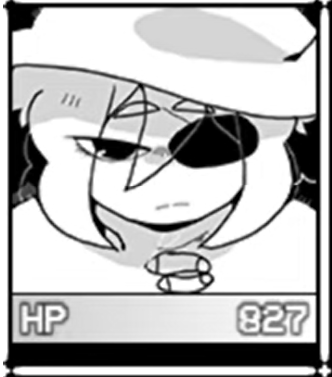
Battles keep getting easier. This is true both for the reason that Siffrin keeps growing stronger even when all enemies stay the same, but also for the reason that you, the player, learn more about the battle system and the various encounters, until you've learned perfect boss clear strategies just from repetition. Have you ever watched a speedrunner play Pokemon? They've played this game so many times, they could do it blindfolded and sleeping. Your own knowledge and Siffrin's new strength work in tandem to trivialize the game's entire combat system as the game progresses.
(Is it still fun? Playing it over, and over, and over again? Is it?)
You and Siffrin are in sync, your experience making everything trivial.
As time goes on, Siffrin grows to care less and less about performing right for their party and more and more about going fast. A huge moment in his character is marked by the end of Act 3; because of story events I won't delve too deeply into, Siffrin has grown afraid of trying something new. And his options of escape are closing in. They need an answer, and they need it fast. He doesn't have the time or patience to dumb himself down, so you unlock one new skill.
It doesn't occur with level up, or with a quest, or anything at all. At the start of Act 4, it simply appears in Siffrin's Craft skills.
(Just attack.)
No pun. No joke. Just attack. Once you notice, the effect is immediate - here you have it, a clear sign of how jaded Siffrin has become, right at every encounter. And it's a damn good attack, too! The only available attack in the game that deals "massive" damage against all enemies. Because it doesn't add any jackpot points (at least, it's not supposed to), you set up a combo with everybody else, but Siffrin simply tears away at the enemy with wild abandon. Seperated from the rest of the party by the virtue of no longer needing to contribute to team attacks (most of the time. It's still useful if they do, though).
Once again, an aspect of the battle system enhances the degree of separation between Siffrin and the static characters of his play. You're incentivized to separate him, even.
Additionally, there are two more skills to learn. They're the only skills that replace previous skills. You only get them at extremely high levels, the latter of which I didn't even reach on both of my playthroughs.
The first, somewhere in the level 70 range, Rose Printed Glasses, a paper type craft skill, is replaced by Tear You Apart. It's still a pun about paper, but remarkedly more vicious.
The second is even more on the nose. At level 80, In A While, Rockodile!, a rock type craft skill, is replaced by the more powerful Rock Bottom.
I didn't get to level 80. If you do, you pretty much have to do it on purpose. You have to keep going much longer than necessary, as Siffrin is just done. And the last skill he learns is literally called Rock Bottom.
What do I even need to say, really.
Your party doesn't stay static forever, though.
By doing their hangout quests, side quests throughout the loops that result in Siffrin and the character having a heart to heart, all of them unlock what I'd call an "ultimate" skill. You know the type - the character achieved self-fulfillment, hit rank 10 on their confidant, maxed out their skill tree, and received a reward for their trouble.
These skills are massively useful. My favorite is Odile's - it makes one enemy weak to all Craft types for several turns, which basically allows you to invalidate the first and third boss, as well as just clown on the King, especially once Siffrin starts racking up damage.
But the thing is. In Act 3, when you first get them, yeah, they're useful. But... do you need them? After all, they're such a hassle to get. You need to do the whole character quest again, you can't loop forward in the House or you'll lose them. If you want to take these skills to the King, you need to commit. Go the full nine-yards and be nice to your friends and not die and not skip forward or skip back. Which is annoying, right?
Well, I sure did think so during Act 4. After all, a base level party can still defeat the King, just with a few more tricky pieces involved. Siffrin can oneshot almost all basic enemies by the time of Act 4. It's this exact evalutation that you, the player, go through everytime you return to Dormont. Do I want this skill, still? Would it not be faster to go on without it? I'm repeating myself, but that's the thing! That's what Siffrin is thinking, too!

I also want to take a quick moment to note, here - all skills gained from hangouts have art associated with them, which no other skills do. This feature, the nifty art, hammers home these as "special" skills, besides just how they're unlocked.
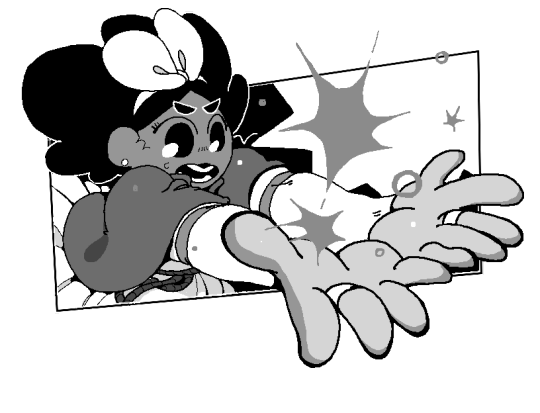
Siffrin also has one skill with associated art.
Yeah, you guessed it, it's (Just attack.)
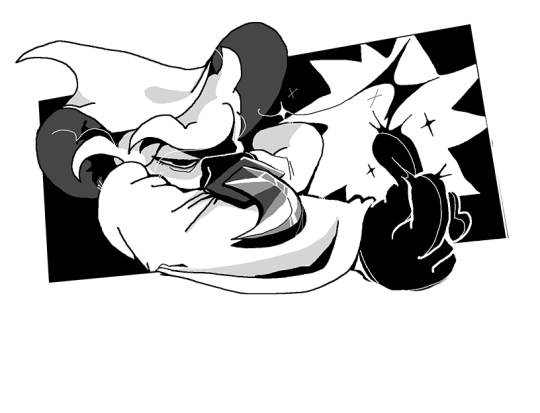
At first, helping the characters is tied to a hefty in-game reward, but that reward loses its value, and in return devalues helping Siffrin's friends every loop. It's too tedious for a skill that'll make a boss go by one turn faster. You, the player, grow jaded with the battle system. Grinding experience isn't worth it, everybody's highest levels are already recorded. Fighting bosses isn't worth it, it's much faster to loop forward.
Isn't this what all endgame in video games looks like? You already beat the final boss, and now... what challenge is left? Is there a point to keep playing? Most games will have some post-game content. A superboss to test your skills against, but ISAT doesn't have any of that. You're forever left chasing to the post-game. That's the whole point - to escape the game.
As most games get more difficult as time passes, ISAT only gets easier. The game becomes disinterested in expanding its own mechanics just as I ran out of new things to fight after 100%-ing Kingdom Hearts 3. Every encounter becomes a simple game of "press button to win."
The final boss just takes that one up a notch.
Spoilers for Act 5 ahead boys!
In Act 5, Siffrin utterly loses it. His last possible hope for escape failed him, told him there's nothing she can do, and Siffrin is trapped for eternity. So of course, they go insane and run up the entire House without their party.
This just proves what you already knew - you dont need the party to proceed. Siffrin alone is strong enough. And here, Siffrin has entirely shed the facade of the jokester they used to be. Every single skill now follows the (Just attack.) naming conventions. Your skills are: (Paper.) (Rock.) (Scissors.) (Breathe.)

To the point. Not a moment wasted, because Siffrin can't take a moment longer of any of this. Additionally, his level is set to 99 and his equipment becomes fixed. You can't even pick up items anymore! Not that you needed them at this point anyway, right? Honestly, I never used any items besides the Salty Broth since Act 2, so I stopped picking items up a long time ago. Now you just literally can't.
Something I've not talked about until now - one of the main equipment types in this game are Memories, gained for completing subquests or specific interactions and events. They all by and large have little effects - make Odile's tonics heal more, or have Mirabelle cast a shield at the start of combat. For the hangout events, you also gain an associated memory that boosts the characters' stats by 30. It lets them keep up with Siffrin again! A fresh wind! Finally, your party members feel on par with you again!
...For a time. And just like that, they're irrelevant again, just as helping them gave Siffrin a brief moment of hope that the power of friendship could fix everything.
In Act 5, your memory is set to "Memory of Emptiness." It allows you to loop back in the middle of combat. You literally can't die anymore. Not that Siffrin could've died by this point in the first place, unless you forgot about the King's instant-kill attack. This one memory takes away the false pretense that combat ever had any stakes. Siffrin's level being set to 99 means even the scant exp you get is completely wasted on them. All stakes and benefits from combat have been removed. It has become utterly pointless.
Frustrating, right? It's an artistic frustration, though. It traps you right here in Siffrin's shoes, because he hates that all these blinding Sadnesses are still walking around just as much. It all inspires just a tiny fraction of that deep rolling anger Siffrin experiences here in the player.
And listen, it was cathartic, that one time Siffrin snapped and stabbed the tutorial Sadness, wasn't it? Because who enjoys sitting through the tutorial that often? Siffrin doesn't. I don't, either.
So, since combat is an useless obstacle now meant to inspire frustration, what do you do for a boss? You can't well make it a gameplay challenge now, no. The bosses of Act 5 are an emotional challenge: a painful wait.
First, Siffrin fights the King, alone. This is already nervewracking because of one factor - in every other run, you need Mirabelle's shield skill, or else you're scripted to die. You're actually forced to fight the King multiple times in Act 3, and have to do it at least once in Act 4, though you'll likely do it more. Point is: you know how this fight works.
You know Siffrin's fight is doomed from the outset, but all you can do is keep slinging attacks. Siffrin is enough of a powerhouse to take the King's HP down, what with the healing and buff skills they have now, not to even mention you can just go all in on damage and then loop back.
(And no matter which way you play it, whether you just loop or use strategically, it reflects on Siffrin, too. Has he grown callous enough not even death will stop their mission? Or does he still avoid pain, as much as he can?)
This fight still allows you the artifice of even that much choice, not that it matters. The other shoe drops eventually - Siffrin becomes slower, and slower. Unsettling, considering this game works on an Action Gauge system. You barely get turns anymore. The screen gets darker, and darker. Until Siffrin is frozen in time, just as you knew he had to be, because you know how this encounter works, know it can't be cleared without Mirabelle.
And, then, a void.
Siffrin awakens to nothingness. The only way to tell you've hit a wall is if Siffrin has no walking animation to match your button inputs. You walk, and walk, until you're approached by.... you. The next enemy encounter of the game, and Siffrin's absolute lowest point: Mal Du Pays.

Or, "Homesickness," in english. If you know the game, you know why it's named this, but that's not the point at the moment.
Thing is, where you could damage the King and are damaged in turn, giving you at least a proper combat experience, even if its doomed to fail, Mal Du Pays has no such thing.
You can attack. You can defend. But it is immune to all attacks. And in return, it does nothing. It's common, at least, for undefeatable enemies to be a "survive" challenge, but nope. The entire fight is "press button and wait." Except, remember the previous fight against the King? The entire time, you were waiting for the big instant death attack to drop. That feeling, at least for me, carried forward. I was incredibly on edge just waiting for the other shoe to drop. And, as is a pattern, Siffrin is, too. As Siffrin's attacks fail to connect, they start talking to Mal Du Pays.
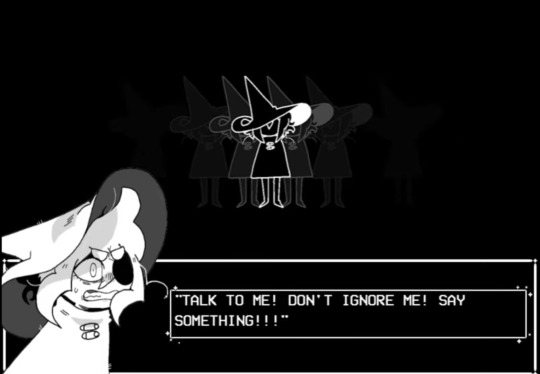
But he gets no response, as you get no attacks to strategize around. The wait for anything to happen is utterly agonizing. You and Siffrin are both waiting for something to happen. This isn't a fight. It just pretends to be. It's an utter rugpull, because Siffrin was so undefeatable for most of Act 4 and all of Act 5 so far. It's kind of terrifying!
and it does. It finally does something. Ma Du Pays speaks, in the voice of Siffrin's friends, listing out their deepest fears. I think it's honestly fantastic. You're forced to just sit here and listen to Siffrin's deepest doubts, things you know the characters could not say because it references the timeloops they're all utterly unaware of. This is all Siffrin, talking to himself. And all you, all Siffrin, can do, is keep wailing away on the enemy to no effect whatsoever.
So of course this ends with Siffrin giving up. What else can you do?
And then Siffrin's friends show up and unfreeze them and it's all very cool yay. The pure narrative scenes aren't really the main focus but I want to point out here:

A) Mirabelle is in the first party slot here, referencing how she's the de facto protagonist, and Bonnie fills in the fourth slot left empty, which shows all characters uniting to save Siffrin
B) this is the only instance of the other party members having act specific battle icons: they're all smiling brightly, further pushed by the upbeat music
C) the reflecting shield Mirabelle uses to freeze the King uses a variation of her hangout skill cut in, marking it as her true "final" skill and giving the whole fight a more climatic feeling.
It's also a short gameplay sequence with Siffrin utterly uninvolved in the battle. You can't even see them onscreen. But... it feels warm, doesn't it? Everybody coming together. Siffrin doesn't have to fight anymore.
At last, the King is defeated. Siffrin and co. make for the Head Housemaiden, to have her look at Siffrin's sudden illness. Siffrin is utterly exhausted, famished, running a fever. And this isn't unexpected - after all, their skills in Act 5 had no cooldown. For context, instead of featuring any sort of MP system, all skills work on a cooldown basis, where a character can't use it for a certain number of turns. The lowest cooldown is actually Siffrin's Knife to Meet You, which has a cooldown of 1. In universe, this is reasoned as the characters needing a break from spamming craft in order to not exhaust themselves.
Siffrin's skills in Act 5 having no cooldown/being infinitely spammable isn't a sign of their strength - it's a sign that he refuses to let himself rest in order to rush through as fast as possible.
Moving on, Siffrin panics when seeing the Head Housemaiden, because seeing her means one thing: the end. Prior to this in the game, every single time you beat the King, the loop ends when you talk to the Head Housemaiden.
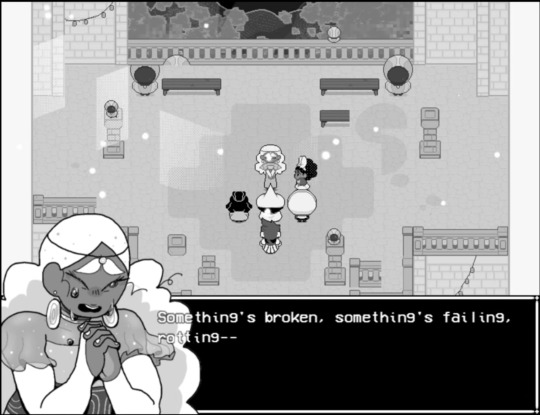
Reality breaks down, the whole shebang. It's here that Siffrin realizes - they don't want the loops to end, because the end of their journey means their family will leave, and he'll be alone again. The happiest time of his life will be over.
Siffrin goes totally ballistic, to say the least.
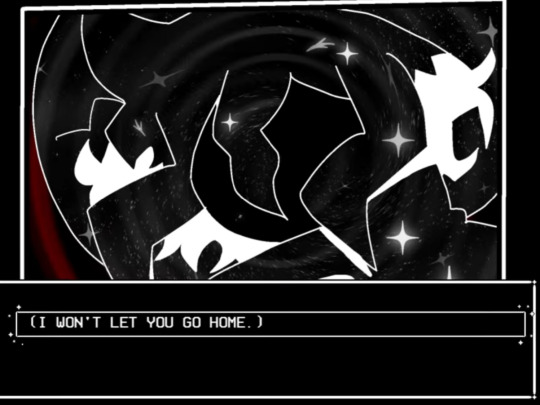
As it turns out (and was heavily foreshadowed narratively), Siffrin has been using Wish Craft to subconciously cause the timeloop because of their abandonment issues. It's rather predictable if you paid attention to literally anything, but it's extremely notable how heavily Siffrin is paralleled to the King, the antagonist they swore to kill by themself at the start of Act 5. The King wants to freeze Vaugarde in time because it is, in his mind, "perfect," for accepting him after he lost his home - a backstory he shares with Siffrin.
Siffrin has become the exact antagonist he swore to kill, and it's shown by how the next fight utterly flips everything on its head.
Siffrin is the final boss.

In a towering form made of stars, Siffrin looks down at their friends. His face is terrified, because of his internal conflict; he can't hurt his friends, but he can't let them go, either. The combat prompt is simply changed to "END IT!"
This fight is similar to the previous, in that you just need to wait a certain number of turns until its over. However, this time, it's not dreadful suspense. It's... confusion, and hesitance.
You have two options for combat: Attack your friends, or attack yourself.
And... you don't really want to do either, I think. I certainly don't. But what else can you do? It's Siffrin's desires clashing in full force. Attack your friends, and force them to stay? Or attack yourself, and let them go safely without you?
Worth noting, here - when you attack Siffrin's friends, you can't harm them. Isabeau will shield all attacks. And when you attack yourself, Mirabelle will heal you back to full. And the friends don't... do anything, either. How could they? Occasionally, Mirabelle heals you and Isabeau shouts words of motivation, but the main thing is...
(Your friends don't know what to do.)
None of them want to harm Siffrin. Both sides simply stare at each other, resolute in their conviction but unwilling to end it with violence. It's of note that this loop, the last one, is the only loop where the King isn't killed. Just frozen. And now here is Siffrin, clamoring for the same eternity the King was. Of course everything ends in a tearfilled conversation as Siffrin sees their friends won't leave him, even after the journey ends, but I still have to appreciate this moment.
Siffrin is directly put in the position with their friends as his enemies, forced to physically reckon that keeping them in this loop is an act of violence, against both their friends, and against himself.
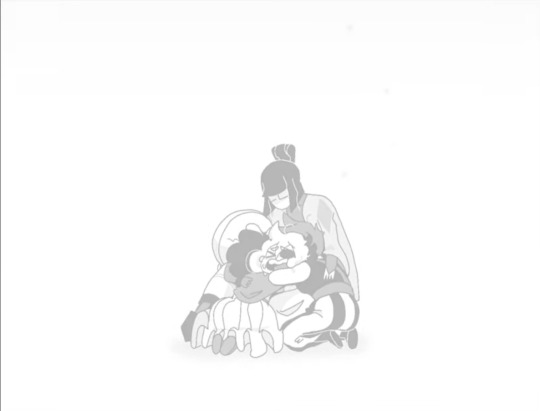
It's a happy ending. But... what does it mean?
Of course, ISAT is obviously about the fear of change. Siffrin is afraid of the journey ending, and of being alone. However, ISAT is also a game about games. Siffrin is playing the same game, over and over, because it's comforting. It's familiar. It's nice, to know exactly what happens next. These characters might just be predictable lines of dialogue, but... they feel like friends. Have you ever played a game, loved it, put countless hours into it, but you never finished it? Because you just couldn't bear to see it end? For the characters to leave your life, for there to be a void in your heart where the game used to be?
After all, maybe it became part of your routine! You play the game every day, slowly chipping away at it for weeks at a time. For me, I beat ISAT in four days. It utterly consumed me during this time. I had 36 hours of playtime by the end. Yeah, in that week, I did not do much more than play ISAT.
And once i beat it, i beat it, again. I restarted the game to see the few scenes I missed, most specifically the secret boss I won't talk about here. I... couldn't let go of the game yet. I wanted to see every scrap I could. I still do. I'm writing this, in part because I still do. It's scary to let go.
Ever heard the joke term of "Postgame Depression?" It's when you just beat a game, and you're suddenly sad. Maybe because the ending affected you emotionally and you need to process the feelings it invoked, or you search for something that can now fill your time with it gone.
The game ends, for real this time, the last time you talk to the Head Housemaiden. But Siffrin gets... scared. What if everything loops back again? And so, his family offers to hold his hand. They face the end, together.
For all loops, including the ending, you never see what happens after. After they leave the loop for good. Because the loop is the game itself. It's asking you to trust that life goes on for these characters, and it holds your hand as it asks you to let go. There's a reason for Siffrin's theater metaphors. He is the actor, and the director, asking everyone to do it over one more time. He's a character within the game, and its player.
There's a reason I talked about endgame content. This, the way it all repeats, there's nothing new, difficulty and stakes bleed away as you snap the game over your knee - it's my copy of White 2 with two hundred hours in it. It's me playing Fire Emblem Awakening in under 3 hours while skipping every cutscene. Are you playing for the sake of play, for the sake of indulging in your memories, because you're afraid of the hole it'll leave when you stop?
Of note: the narrative never condemns Siffrin for unwittingly causing their own suffering. He's a victim of circumstance. It's seen as endearing, even, that Siffrin loves their friends to the point of rather seeing the world destroyed than them gone. But Siffrin is also told: we'll stay with you for now, but we'll part ways eventually. And one day, you'll have to be okay with it.
Stop draining the things you love of every ounce of enjoyment just because you're afraid of what happens next. I'm not saying to never play your favorite games again. Playing ISAT a second time, I still had a lot of fun! I saw so many new things I didn't before, and I enjoyed myself immensely, reading the same dialogue over and over. But... it makes me look at other games I love and still play, and makes me ask... is this still fun? Do I still need to play this game to enjoy it? Even writing this is an afterimage of my enjoyment, but it's a new way to interact with the game, to analyze it through this lens. Fuck, man, I write fanfiction. Look at me.
All of this, fanart, fanfic, analysis, is a way to prolong that enjoyment without making yourself suffer for it. Without just going through the motions of enjoyment without actually experiencing any. But one day, the thing you love won't be fun to talk and write and draw about. And it's okay. You'll have new things to love. I promise.
In the end.... I'm certain I'll replay ISAT one day. Between great writing, art, puzzles and unresolved mysteries, it's my shoe-in for game of the year.
But I won't replay it for quite some time. I've had enough, for now, so I let my love take other forms.
Siffrin is never condemned, because love is no evil. Be it love for another person, or for a game. And please, if you're overempathetic - it's still a game, at the end of the day. The great thing about games is that you can always boot them up again, no matter how long its been.
A circle within a circle indeed.
To summarize:
The repetitiveness of ISAT's combat, lack of new enemies, and Siffrin's ever increasing strength eventually allows you to snap the combat over your knee, rendering it irrelevant and boring. Though this may seem counterproductive at first, it perfectly mirrors how Siffrin has also grown bored with these repeated encounters and views them only as an obstacle to get past. The reflection of Siffrin's own tiredness with the player's annoyance increases the compassion the player has for Siffrin as a character.
Additionally, the endgame state of the combat system serves as commentary on the state of a favorite game played too often, much like how Siffrin has unwittingly trapped themself in the loop. Despite the game having no more challenge or content left to over, a player might return to their favorite game anyway, solely to try and recreate the early experience of actually having fun with it. This ties into ISAT's metanarrative about the fear of change and refusal to let go of comfort even when the object (here, your favorite video game) offering that comfort has become utterly bereft of any substance to actually engage with. Playing for the sake of playing, with no actual investment to keep going besides your own memories.
Later on, stripping away even the pretense of strategy for a "press button and wait" format of final bosses highlights the lack of options at Siffrin's disposal and truly forces the player into their shoes. Truly, the only way to win is to stop playing.
#feli speaks#in stars and time#isat#isat spoilers#lays down on floor. it's done. it's done#i actually narrowed down in scope to just focus on the combat by the way. and this is like. several thousand words
2K notes
·
View notes
Note
I can easily imagine a situation where Wukong is actually fem or trans actually. Like, China, especially ancient China, is a hugely patriarchal society, and Wukong is born into a matriarchal society. One that has a pretty significant language barrier considering Wukong describes speaking chinese or any none monkey language really as "speaking human." It's easy to imagine a situation where there wasn't really a good descriptor for what Wukong was to her tribe other than "Chief" or "King" or little baby Wukong not knowing the proper pronouns to a language he's not quite fluent in yet accidentally claiming herself to be King when Queen or Chieftess would be a more appropriate title. And history just... never realizes it was a translation mistake or that Wukong was actually a girl until MK becomes Wukong's successor. It could even be a situation where Wukong hid her gender when one considers the views of women at the time and the fact she spent several years in the presence of a very aggressive flirt and pervert, even if Baijie probably wouldn't have ever actually done anything just his presence done would make her uncomfortable
Just little ideas based in what you said about the story not really changing much if Wukong were female
Prev.
I can def see a situation in LMK where Wukong identifies as a girl (personal hc is genderfluid) and just... got tired of correcting people.
Younger Wukong didn't exactly have the correct word for her status amongst the troop in "Human" language so she uses "King" since it's the closest. "Queen" didn't sound right cus that meant the King's mate from what she saw.
We know that Subodhi takes on acolytes of all genders, so he had no problem with Wukong (then Shihou) wanting to learn daoist & buddhist magic. He did think Wukong was a guy at first simply cus he didn't think to ask. He did have some old-fashioned "Women = Yin. Yin is bad" views though, and that led to a few arguments between him and his most outspoken student.
No one in Heaven or the Seas bothered checking cus "Thats a Monkey". Except for whoever was in charge of electing Wukong for the stable-monkey job - that was a directed hit at her (in ancient china female monkeys were kept around horses for luck/scaring off wolves). When Sun Wukong realised that she had been given a job even below a stable-boy simply for her body and/or gender identity, she flipped out.
Being elected a Peach Orchard Maiden was a lot better, which made her even more upset that she wasn't allowed to attend the Queen's Banquet - the Orchard Maidens got to go! Why couldn't she!? The real reason turned out to be that the other Maidens were actually the Jade Emperor and Xiwangmu's daughters - a fact that's often forgotten amongst even the nobles of the Celestial Realm. The Maidens hadn't been able to explain that it was an immediate-family-only party when Wukong decided to crash it.
Bonus for Stone Matriarch au: Xiwangmu immediately recognises a startling familiar destruction in this little demon. Like she's seeing a mirror of her younger self; a wild queen destroying the Heavens to prove her worth. The Queen Mother even pauses at the sight of the chaos on Flower Fruit Mountain, thinking she's seeing one of her own daughters throwing a tantrum.
Ofc the relationship between Fem!Wukong and the Brotherhood gets altered a bit. I feel that they knew Wukong's gender and supported her 100%. DBK goes full "You looking at my little sister, punk!?"-mode on anyone that even looks at Wukong. PIF helped a lot with understanding "human girly-stuff" when Wukong joined the Celestials.
Macaque knew from day 1, and it doesn't change his level of devotion to his King - though he makes a point of referring to Wukong as the "Beautiful Monkey King". Guaranteed to leave Wukong blushing. Macaque's own gender identity is a question mark - he takes what gender he can steal from others.
It also only served to reinforce Azure's projected martyrdom onto Wukong - who would be the best figurehead for the rebellion than a woman who suffers as much pain as the Bodhisattva Guanyin?
Tripitaka likely faints once or twice at the revelation that his bodyguard is a bloodthirsty woman - but quickly gets over it cus thats the least of his worries. Tthough he does panic at the thought of Wukong being like certain other female demons towards monks -Wukong quickly puts his worries to rest; Tripitaka isn't her type.
Sha Wujing and Ao Lie didn't mind but they made sure to have Wukong's input for when she preferred to be addressed as male - usually amongst humans or celestials.
Zhu Bajie on the other hand...
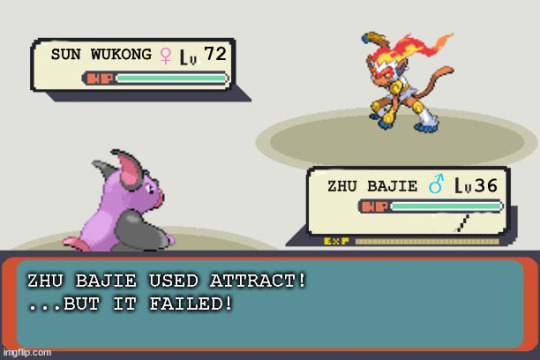
It took Bajie a lot of rejection to get the point that the Monkey King was not a free lady. After a few years their relationship became a lot more "annoying siblings"-vibes, but the initial creep factor always made Wukong uncomfortable.
MK (he/they transmasc) discovers the Monkey King's true gender and *immediately* works to correct his language.
MK: "Monkey- wait, do you prefer being called King or Queen? I don't want to misgender you if possible." Wukong, surprised: "Uh, King is fine bud. It's sort of my brand now anyway." MK: "Okay! Never be afraid to correct me if I mess up." (*points to trans pride pin on his jacket*) :D Wukong, honestly touched: "Aww."
Later when the rest of the Noodle Gang meets Wukong, there's a little surprise - mostly from Tang who's rambling how all the translation inconsistencies finally make sense! Mei shrieks with glee - the Monkey King is "The Ultimate Girl Boss!". Sandy politely asks for Wukong's preferred pronouns if she's comfortable sharing them. Pigsy is a lot more understanding of why Wukong felt the need to hide her gender for so long.
Pigsy: "Let me guess, you pulled a Mulan cus of a certain... pervert in your travel party." Wukong: "Eh not entirely... Bajie figured it out after a few months, but by then he already saw me as One of the Guys. Felt weird to bathe or sleep near him though - dude stared." Pigsy: "Gross." Wukong: "Mega-gross."
Wukong's dynamic with Spider Queen becomes a bit funnier, since she likely doesn't know Wukong's gender. Second she learns that her opponent is "a fellow Queen" she gains a lot more respect for her. Female spiders are overwhelmingly the strongest after all.
If it becomes wide knowledge during LMK, then Wukong gets an intense public reaction, not just from fans (she tells Fire Star to deal with the media dumpster fire) but from demons that knew her back in the day that never knew and are surprised, or did know and are extremely proud of her for coming out.
DBK loudly declares "MY BABY SISTER HAS RETURNED!". The king he's been forced to fight felt like a complete stranger until Wukong started owning her gender identity again. He is extremely supportive to an embarassing extent. Red Son feels elated, especially since they're coming to terms with their own gender indentity.
And ofc a lot of this is me projecting as a trans masc person - I tend to automatically see Sun Wukong's as afab either way. This idea can have Wukong either as afab genderfluid or trans fem, whatever tickles the brain.
#sun wukong#lmk mk#qi xiaotian#six eared macaque#liu er mihou#gender bend#gender swap#jttw#journey to the west#lmk#lego monkie kid#lmk aus
90 notes
·
View notes
Text
THE BERZATO IN-LAWS
an analysis in Sydney, Pete, Tiffany and Stevie
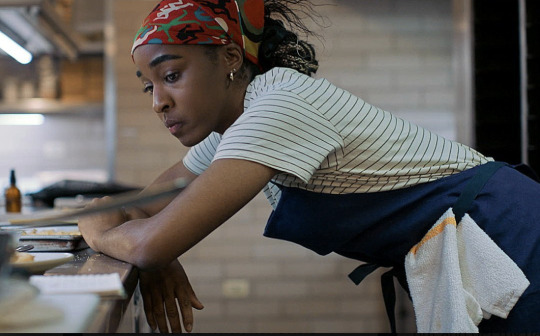
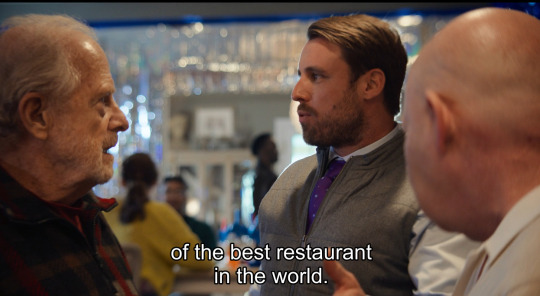
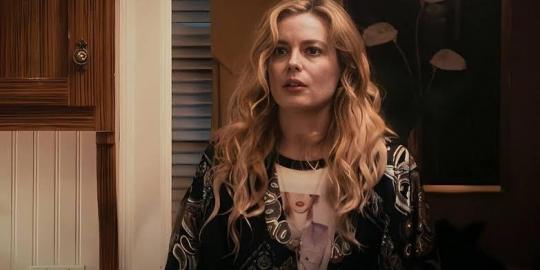
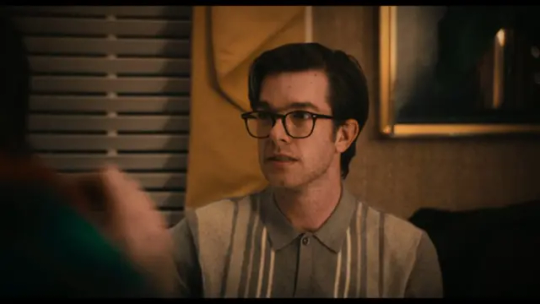
We have met the romantic interest/partners of the Berzattos, and I think the story is telling us something on why they are good to their partners, pariculary in they way they could help them heal from the toxic family dinamics they were raised on. And again, it comes all to food, Donna's food, in particular. Let me explain:
The Burden of Donna's food:
So, when you are feeding somebody, you provide care for them. Food is a metaphor for the biological need for feeding, but Donna never served bad food to her kids, she has decided to put emotion, time, and energy into preparing these meals. With food, she will prove her intentions to care for them. In preparing meals, her family will gather, and her sons and daughter will bond. But in this activity, and eating at the table, it will be the moment for Donna to punish them, to ridicule, gaslight, and hurt them. So her food is nutritious and poisonous at the same time.
So, I have noticed that in the Berzatto family, there are two types of people, the enablers/participants in keeping the family running the way it is (in the case of Carmy and Nat, they do it even when it doesn't benefit them, while everybody else benefits someway) and the other type is the non-conforming/change maker. This last category only can be applied to the inlaws: Sydney, Pete, Tiffany, and Stevie.
The Change makers/Inlaws:
Why do I call them non-cormorning? Because they are. Neither of these individuals is looking at the family dynamics in the Berzattos and says "Yeah, this is okay" Examples follow:
Sydney calling on everybody's bullshit on those first days of her working at the beef. She managed to fight the water with fire and turned everybody around.
Pete defending Carmy.
Tiffany calls Richie out for ruining the sweater she gave him, especially because Richie minimized to please Donna. She also calls them psychos.
Stevie talking about them calling him gay
None of them have a tendency to respond in an aggressive way toward conflict, if anything, they do righteously get angry and try to defend themselves but they never lower themselves to the level the aggression was made. They try to introduce kindness into the equation. The worst part, the show at times lets people describe them as "naive," "soft" and "too demanding" (Tiffany and Sydney), or shames them in other ways.
And you know what? all is symbolized in the way each reacts to Donna's food/system.
Sydney was able to take control of the kitchen without (and despite) toxic dynamics previously established. She is also trying to create a new menu with Carmy based on his mom's recipes. And the worst part? Carmy didn't co-create the menu with Sydney, he didn't let her (as far as we can see) modify the essence of Donna's recipes in the restaurant. If they had done it, maybe this food would have acquired something else for Carmy, a chance to heal the past trauma (metaphor).
Pete trying to collaborate with Christmas Dinner (bringing something new, kindness)
Tyffany not being able to eat Donna's food due to her pregnancy (she was already fed up and relieved to being far from them) which may be also a signal for her wanting to protect her baby from all that madness.
Stevie is the only one who insists on helping Donna to cook. He also is the only one who gives Nat the confort she asked for, not the one other thought she needs (Richie and Mickey for example).
#its being a while since I saw fishes please let me know if I missed something#Storer and team are crazy in methaphors#carmy berzatto#sydcarmy#sydney adamu#the bear fx#carmy the bear#sydney x carmy#carmen berzatto#the bear meta#the bear#tiffany the bear#pete the bear#natalie berzatto#richie jerimovich#stevie the bear
101 notes
·
View notes
Note
how'd you start with your uanlikri setting? i've always wanted to make a detailed fantasy-scifi-speculative bio type thing, and i'm finally starting with it, but it feels so big that i just don't know where to begin.
So, let me preface this by saying that Uanlikri has turned 12 this year. It has been a long haul project and it has been through a lot of changes - I have been working on it all my adult life, literally: I started working on it when I was 17.
With this established, here are two things about how I started: I don't quite remember how I was approaching it when I begun working on it, and lot of the stuff I put in it, especially in the first years, has been reworked, replaced, or removed*.
When I first started working on it, I was mostly trying to worldbuild around this plotline I had in mind, which remains, mostly intact, as the plotline of The Flight of the Winged Serpent, a story I may or may not write someday about the death of the last Emperor of the Namitan Empire. These days, I'm mostly trying to worldbuild around the location of another story, Empire's Wake, which takes place in the City State of Ranai after the fall of the Namitan Empire (which is why I keep going back to Ranai in a lot of my worldbuilding posts).
Regardless of whether you intend to write a story in that universe or not, for me the best approach to worldbuilding is to have a story, or a character, which serves as an anchor to your work. I'm not very good at focusing on Ranai or even the Basin Region, where both Ranai and the Empire are situated, but this still helps me direct my attention: although I've built loads of stuff for the lands south of the mountains which have little to no relevance to Ranai, I keep the level of granularity of that worldbuilding low - none of it is in depth, and I don't try to develop details for it. If I ever want to work on a story set south of the mountains, I'll have loads of stuff to work with, but mostly I'll have loads of stuff to develop before I can write in that part of the setting, because the worldbuilding there is very surface-level.
The other big thing I always and systematically recommend that people should work on and think about more is material culture (this could not possibly be because this is my field of studies). Whenever I don't know where to start, thinking: what's their land like? What grows there? What can they harvest, what can they intentionally grow, and what can they make from it? What do they eat, and how do they prepare it? The materials and designs of our houses, furniture, and tools influence our lives on a completely fundamental level. What does it mean for the rythms of daily life to have tiny houses without windows, or big houses with inner courtyards, or houses without clearly deliminated indoor/outdoor spaces, or communal houses? Do they need to grind their flour by hand, and who does the grinding? Going back to the material conditions of a group and what they can do from there is both an endless source of inspiration and a way to get back to the fundamentals and get a good base going from which to build up afterwards.
Also, and probably most importantly, I'd say focus on what's fun for you at that moment. A couple years ago I spent a lot of time doing a lot of work on colour genetics for a few critters. Is it useful to me now? Not really, but it's kind of nice to have, and more importantly, I had loads of fun doing it back then.
*There's also loads of stuff that's stayed - some that grew with the setting, some that I've never needed to change, and some that I'm kind of saddled with for better or worse. More on old Uanlikri under the cut.
Uanlikri started with antioles, which were initially lizard people with a very agamid / iguana - like look. The fauna in their world was kind of all over the place, but more fantastical overall and much more mammalian. The idea that they might be dinosaurs came quite early, I think, because they had feathers as early on as day 2 of the project (the very first antiole drawing is featherless), but I only decided to take this idea seriously and redesign antioles consequently in 2017, 5 years after I begun working on Uanlikri. I'm mostly happy about how antioles look now, but the strange feather crests are a remnant of the very first designs that, quite frankly, annoy me deeply lately. If I were to design them today, they'd have more sensical feather placement, but the weird crests are staying because I don't feel like invalidating the last 7 years of work and the 40 something drawings in the "antiole fashion" series. Making the rest of the fauna dinosaurian is something I decided on in 2017 as well, but which I've only begun taking seriously in the last year and a half or so - I've done a huge amount of work in the last 2 years on account of many things including a better workspace and also graduating and not being a student anymore.
At the start of Uanlikri, there were 4 ethnic groups in Uanlikri: the greens, the sand-folk, the grey mountainfolk, and the Pale Peoples. This a thing that's really grown with the project as it went: I never scrapped or intentionally revamped it, but it's both remained true and changed a lot in 12 years. The green peoples are now called the Undenau and represent two different colonization events in Uanlikri's history, one very ancient (6000+ y ago) and one recent (250y ago), with some surviving cultural taboos among the two groups which posit a common ancestor. The sand-folk are still kind of mostly beige and brownish (though with a lot more khaki as well), and probably arrived first. The situation with the mountainfolk has complexified considerably with the addition of polar regions and peoples to the South of the continent which did not exist in the first maps. The Pale Peoples are now mostly immigrants of another landmass.
One thing I'm saddled with that annoys me is that, in the beginning of the project, the sand-folk were somewhat (badly) arabic-coded especially in the names of things, and though I've tried to dilute that influence through the years, it's largely remained because I just don't see myself renaming such a huge chunk of the map and the characters which I know by heart. I think it's uninspired and kind of stale, but it is what it is.
Conlanging is truly the aspect of the world in which i've felt the most saddled with old decisions if only because I think redoing and relearning huge chunks of the world's names would be more of a disservice to me and the progress of the project than having a slightly better or more inspired bank of names. I try to avoid indulging the urge to redo stuff as much as possible.
#long post#asks#worldbuilding#Uanlikri is getting really old as a project but I was not working *intensely* on it all these years#for a while i was working more on pigeon aéropostale#and also I Experienced Professional Burnout as a student and that kind of shot my creativity for a while.#but it's never been entirely dormant either#also take notes I didn't most of the time and it's fine but i'm also having so much fun trudging through old stuff for inspo
8 notes
·
View notes
Text
Ficfinder finds: So, I guess…we all have issues.
TMNT 2012 Fanfic Summary: Mikey wasn't insane. He knew he wasn't. He really did have three brothers and a father, no matter what his paperwork said. Also, none of his family was human, and neither was he. That was the truth about him, no matter what anyone else thought. (Sticking by that truth got him thrown into an asylum. What a surprise.) **Winner of FIRST PLACE in the Universal TMNT Mature Fanfic Competition 2016 for MOST COMPELLING AU, and winner of SECOND PLACE for MOST SPOT ON PORTRAYAL OF MICHELANGELO.**
So, I guess…we all have issues: Appraisal and Ratings
(Don't know what fanfic "Appraisal and Ratings" means? Check out my explanation on my Main Masterpost! Looking for a different fanfic to read? Head on over to my Fanfic List Masterpost!)
Disclaimer: This fanfic is written by @spectrumscribe. This fanfic is completed, and is part of an unfinished series. This fic has an ending that isn't a cliffhanger for anyone who was worried.
The fanfic ratings are not based on quality, favoritism, or how good I think it is, but rather, how intense a subject may be. Like a movie review, or the tags on Ao3, letting the readers know what to expect.
Plot: 💛💛💛💛💛
"Plot is five out of five!! The plot of this story is compelling, confusing, invigorating, and enticing!! Right away, it grabbed my attention, and I got sucked into the story!! The plot was unique, unlike anything I'd read before, for sure a good read!!"
Suspense/Mystery: 💛💛💛💛🖤
"Suspense/Mystery is four out of five!! Right off the bat, I was on the edge of my seat!! This fanfic is FILLED with suspense, and so so much mystery!! It gets a little intense even, which can be really fun!!"
Angst/Hurt: 💛💛💛💛💛
"Angst/Hurt is five out of five!! Aw man, the hurt, the sadness, the confusion and loneliness. Augh!! This fanfic is filled to the brim with mental illnesses, mental dilemmas, mental struggles that all effect the characters very very physically. Hurt my soul to read, and I loved every second of it."
Fluff/Comfort: 💛💛🖤🖤🖤
"Fluff/Comfort is two out of five!! The fluff/comfort levels of this fic are fairly low. While comfort happens, the fluff it minimal, which only serves to make the impact of the hurt and angst even better!! Plus, it gives it a more realistic feel, as in real life, most of us don't receive comfort when we're hurting. At least, not like how its most often portrayed in fanfics."
Emotions Conveyed: 💛💛💛🖤🖤
"Emotions Conveyed is three out of five!! Ah, the emotions displayed in this fanfic are masterfully and I do mean masterfully written!! Some of the scenes and chapters definitely screwed with my head, influencing my moods for sure. Emotional manipulation in writing form!! Beautiful!!"
Drama/Tension Level:💛💛💛💛💛
"Drama/Tension Level is five out of five!! Oh gosh, the stress, the anxiety, lemme say it again; THE ANXIETY!! So many times I was convinced something was going to go wrong, but then things were ok, but then not ok, but then ok and-- Seriously, this fic has the stress, but in a good way!!"
Triggers: 💛💛💛💛💛
"Triggers are five out of five!! This fanfic is VERY trigger heavy with the mental health stuff, so please make sure to read the tags, and stay safe everyone!! ^^"
Legibility (Reading): 💛💛💛💛🖤
"Legibility (Reading) is four out of five!! This fanfic is such a lovely read! The thoughts being in italics, and the sections being divided up via large paragraph space makes for such nice formatting."
Legibility (Audio): 💛💛💛💛💛
"Legibility (Audio) is five out of five!! This fanfic is incredibly satisfying to listen to!! Due to the way it was written, the story flows very smoothly in audio book form. Plus as this story runs on the more intense side, listening to it while doing a task is very enjoyable!!"
Length: 💛💛💛🖤🖤
"Length is three out of five!! 'So, I guess…we all have issues' has 22 chapters, each one varying in length, and a word count of 112k words. Some chapters run on the shorter side, taking from 8-20 minutes to read, while others are very long, taking up to even an hour to read (though there are only a few chapters with this length)."
~~~~~~~~~~~~~~~~~~~~~~~~~~~~~~~~~~~~~~~~~~~~~~~~~~~~~~~~~~
So, I guess…we all have issues: Chapter List
(Chapters will be added as I rate and appraise them ^^)
Chapter 1
#tmntficfinder#ficfinder#ficfinder finds#Ficfinder finds So I guess…we all have issues#TMNT 2012#tmnt 2012 fanfiction#tmnt 2012 fanfic#tmnt 2k12#reincarnation au#tmnt 2012 reincarnation
14 notes
·
View notes
Text
Re: my point in that other meta post about assuming that scenarios people write fic about = their expectations for canon -
@pearwaldorf's tags: #fans' sense of story is not always the creator's sense of story#the narratively interesting as opposed to the desire to resolve a fan's most pressing issue
@bizarrelittlemew's tags: #oh yes and the last point is especially important tbh#even when i write canonverse fics it doesn't mean that's what i think should happen in canon#or what i think did happen (in case of missing scene fics)#it's just playing in the canon sandcastle within the bigger sandbox where i usually build my own castles#it annoys me to no end when people assume non-existent intent on the author's behalf
This is something I started thinking about at some point during Prisons of Our Own Perceptions or maybe something else angsty. Because, for one thing, canon just doesn't have that kind of angst! I don't/didn't expect the canon to get very explicitly dark in the way of angsty fic - compare how things go down with Ned Low to what happens in whump fics where another pirate comes in, tortures people, and causes trouble.
I interrogate my characterization/dialogue A LOT, so I'm always asking myself, "Can I hear Rhys saying that as Stede? Would Ed throw another 'fucking' in there?" And this step gets difficult when writing a non-canonical level of whump, because I'm trying to figure out what they'd say in a situation that would never happen on the show.
Some people do write their version of what might happen in the next season of canon, or something like that. But I think most of us are writing what seems fun to write for various reasons, and "actually feels like a plausible episode/chapter of canon" doesn't really come into it. Even fic that's more plausibly canon, there's often a wayyyy bigger emphasis on comfort or explicitly exploring trauma than you'd ever see on a show (which is half the reason we're writing it). Often, I think, this kind of departure from canon gets treated as a fundamentally different category from darker fic because the idea is "this is what canon would do if it slowed down and gave them breathing space," but ultimately they're the same - the writer is creating a scenario that pleases them that wouldn't be how canon would do it.
I've written multiple reunion fics, and none of them were what I thought canon was actually going to do - they weren't attempts at prediction. Momentum was about getting them into position for Feriowind's artwork. Sweet Damsel was likewise based on a particular image, but one I had in my head. would the sun for thee more coldly shine was for a vague prompt about injuries, and I liked the idea of Ed finding Stede while Stede was hurt, to put his concern up against whatever negative feelings he might have about Stede leaving, because I thought that would be an interesting story. Likewise, I seemed not one for such man's love was about Ed holding onto his negative feelings but also getting sick and being tended by Stede (closest thing to a true prediction, but I certainly didn't think it would be). And First Night Home imagined a way less fraught reunion than canon got, for once, because it was for a domestic fluff fic fest.
In all of these, the way the reunion went was to serve the point of the plot and relationship dynamic rather than to guess at what might actually happen. The same thing is true of other types of fics, really. The story comes first.
#writing#ofmd#I probably meant this to have more of a point but I've forgotten by now#this has been up in a tab half-written for days
12 notes
·
View notes
Text
Thai BL: The Fanservice Problem...
Now here's the thing... I'm not here to offer solutions, though I do have proposed ideas that I may include at the end, but more just to breakdown my thoughts on fanservice in Thai BL.
First, we'll start with a general definition of fanservice:
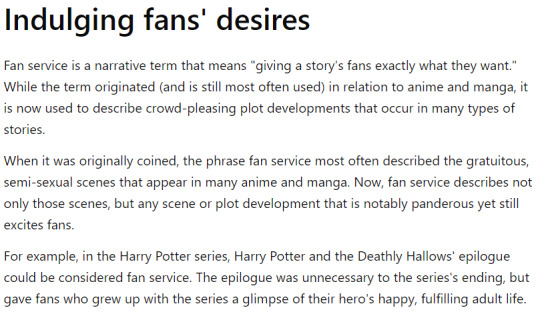
I think that the connection to print media originally is important when we're looking at modern BLs series and movies, as they have a base in print media. In Thailand you have niyaai waai (“Y” novels), kaatuun waai (“Y” comics), as well as the Japanese Yaoi Manga and Korean BL Manwha that are very literally the basis for numerous series, in addition to original story BL series.
In terms of the fanservice we see in relation to Thai BLs...that goes a step further, moving out of the fictional world and into the real one. The fanservice we're now talking about is actors whose characters are couples often being paired for promotional events and they are expected to on some level act similarly to their onscreen characters. This includes individual character behavior, but also having the two actors behave in a way that could be (and is intended to be) read as romantic by fans. This includes a lot of different actions, but skinship (which I'll breakdown later), general chivalrous behavior (like serving your partner first), going on 'dates' specifically with the intention of presenting those experiences on social media. The important part about fanservice in this context is that it is always done with the intention of being seen by fans. It doesn't matter if it's a publicly streamed and hosted event, or just an Instagram post, if it's made public by the actor, or their company, it's intentional and it's likely fanservice.
What is the purpose of fanservice then?
Profit, essentially. For these companies, who both produce BL, but also often represent these actors as a talent management agency, there's a profit to be increased by presenting actors in this way. Having these 'couples' become popular to fans means continued view of future series, but also means that they can set contracts to have them promote various products. You will see the actors often promoting the same products that are used in product placement in their series. A brief list off the top of my head: the Lays chips, whatever that flavored water or juice they're always drinking in Wabi Sabi shows, Epson printers (I think it's Epson), various skin-care serums, L'Oreal hair color, the menthol inhalers, the list is likely endless. In the series, product placement gives them direct funds to actually make the shows, but by having the actors promote the same products, these companies are getting a percentage of that payment also because they are also working as representation for the actor.

To make easy numbers, while Gemini's contract might have been $1000 for this post promoting this brand of Ramen, because GMMTV set-up that partnership/contract, and they represent Gemini as talent, they'll get $200 for themselves, Gemini takes home $800 minus taxes. Again, these are made up numbers and I truly hope that no one is actually getting a 20% commission, but I trust none of these companies, so I honestly wouldn't be surprised if it was higher.
But because this is genuinely how a good majority of production companies gather capital to be able to make shows, the more popular a ship is can directly equal out to how many ad partnerships they can create for them, as well as the price they can charge. In order to give an approximate view, I chose two actors from the same company, Domundi's Zeepruk and Tutor. Because of Zee's vastly higher popularity and the wide difference in follower counts I wanted to have a third actor for comparison, and so I chose PP Krit. It's not an exact match across the board, but I think gives a good view of scale. Here is the break down of their last 30 Instagram posts:
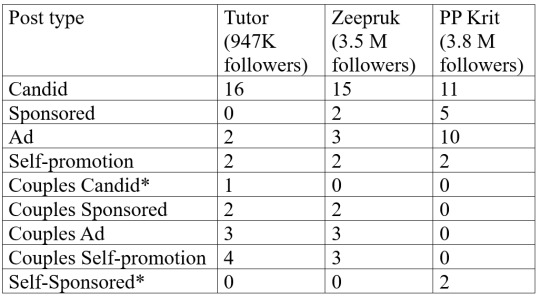
Now I'll start with some definitions of how I categorized things. Ads are things that have clearly been shot specifically to promote a product, and often have instructions in the captions on where to purchase, or specific benefits about the products. Sponsored posts are any posts where they tag a brand in the caption, but it doesn't have the detail of the Ad posts, or posts of them at a place or event where they were invited to attend by the brand for the purpose of being photographed there. Self-promotion is trailers, photos from their series, or fan events. And finally candid is any pictures that are just there for the fun, thirst traps, vacation pics, pics from behind the scenes of events, and while few of these are actual 'candid' pictures, they're not for the purpose of promoting a 'brand' in particular (outside of the fact they are all clearly intend to promote the 'brand' of the actor). The Couple+ 'whatever' is the same as listed above, but is for any posts that include the other half of their acting pair (meaning Yim, Nunew, and Billkin). The Couples Candid is only found once on a post from Tutor, and is clearly taken when they were filming their Tiktok BL short, but there's no tags for the short series, nor instructions on where to watch it, so I'm calling it a candid post. For PP Krit, there are two posts that I'm categorizing as 'Self-Sponsored' as one is for PP's own brand (Caremate) and the other is for a Car Repair shop owned by a family member. Later when I do math with this information those posts won't be included in the 'potential profit' as I can't guarantee he was paid, and if he was I doubt he charged his standard rate.
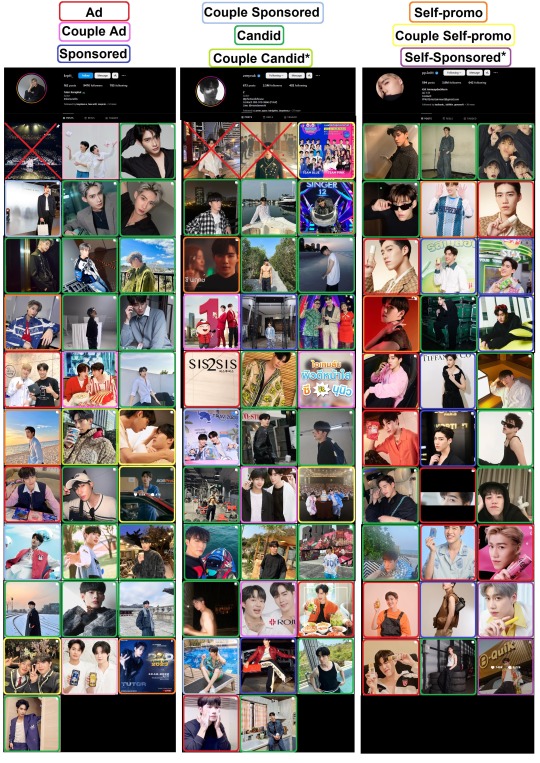
Looking at Tutor 7/30 of his latest Instagram posts are ads/sponsored and 5 of the posts are 'couple' posts, meaning they also feature Yim. For Zee 10/30 are sponsored and 5 of those are 'couple' posts also featuring Nunew. It's also relevant that the earliest post I counted of Zee is from April 8, 2023, for PP is April 6, 2023, and the earliest one from Tutor is from December 6, 2022. Given that we have about 30 posts from Zee in 2 months, I'm simply not going to scroll back to December to see what the comparison is time wise, but if the ratio remained the same 10/30 in 2 months, that would equal 30/90 over 6 months, with 15 being 'couple posts'. So you can see the difference made in terms of money brought in by more 'popular' actors. If we stick with our $ 1000 per post cost for individual posts, and double that for 'couple posts' ($ 1000/per actor) that's $ 45,000.00 total brought in and $ 9,000 kept by Domundi as commission. For Tutor, in the same 6 month span, he (and partially Yim) brought in $ 12,000, with Domundi keeping $ 2,400 as commission. That's a marked difference for Domundi. And completely ignoring the very high likelihood that Zee is probably bringing in 2 to 3 times what Tutor his because of his popularity and longer time in the industry. If we look at those same number with PP, he has 15/30 posts that are Ad/Sponsored, at $ 1000 per post that's $ 15,000 directly in PP's pocket essentially, since he has his own independent company that represents him. Which causes it's own complications, as he has many more sponsored and ad posts on his company account, many of which he also appears in with Billkin. (Sidenote: I actually find it fascinating that there's no sponsored/ad posts featuring Billkin on his personal account, in fact it's surprisingly rare for him to post Billkin on his account at all outside of stories, at least recently.) So all of this to say, you can see how having these actors promoted in pairs is more profitable for the company as far as ad promotion.

The additional benefit is we're looking at is fans being able to follow pairs through different stories. Like many fans of media, we will often find actors we enjoy, and then proceed to actively work to watch different projects they are in because we like them, find them to be incredibly talented, think they're handsome, etc. This general expectation is capitalized on by companies by having pairs act opposite each other in multiple stories. At this point for ZeeNunew and TutorYim, we've seen both in the Cutie Pie series, but both also have future work to look forward to. I've previously mentioned the BL Tiktok shorts with TutorYim, and they are going to be the leads in Middleman's Love, which is due to come out at the end of the year. ZeeNunew have a new film, After Sundown, as well as new series The Next Prince, and will be returning as Lian and Kuea in Naughty Babe as second leads. All of these future shows and series are produced by Domundi, meaning they will get a portion of profits from appearances, merchandise, etc. that goes along with those series, as well as the potential ads or product placement in the shows. There’s also a high likelihood that product placement in Naughty Babe will garner a higher price, as it’s a spin-off of an already popular show with already popular actors, where Middleman’s Love, as the first series showing Tutor and Yim as leads, would be ‘cheaper’.
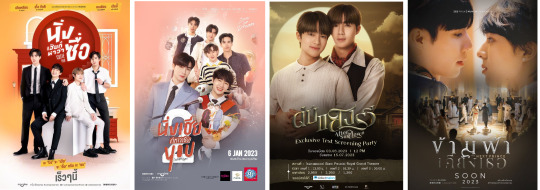
Fanservice as perceived by Fans
Now this can be difficult to break down, because it all depends on the fan. Fanservice as a concept is widely understood by Thai fans. They actively recognize that it exists, and they enjoy it. Other East Asian countries also recognize that Thai BL employs fanservice, and while they accept and enjoy it, they generally do not want to see the practice taken up by BL actors in their own country. In fact, it’s generally rare for actors in BL series in Japan, Korea, Taiwan, etc., to have actors paired for multiple series, outside of appearing as the same characters over various series. The first to come to mind is the characters of Bo Xiang and Zhi Gang from HIStory 3 having in a small guest appearance in HIStory 4, played by the same actors, Wilson Liu and Zhang Han Yuan. Because they are rarely kept as an acting pair, fanservice outside of the actual scripted media is not expected and would have little benefit.
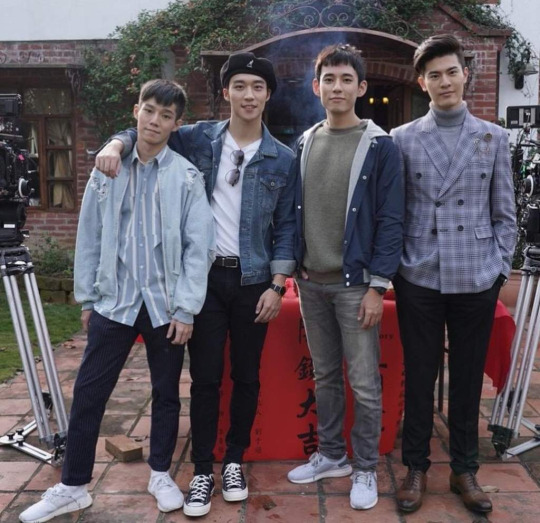

Moving away from East Asian, very particularly to Western, audiences where fanservice is something that many media consumers ONLY expect to see in the media itself, never outside of it. Speaking as a western fan myself, I was genuinely surprised at the amount of ‘bonus content’ that is the expected norm with Thai BL’s. The fan meets, sponsored events, concerts, the vlogs and excursions, the behind-the-scenes content, all of it is generally beyond what I am used to as an avid media fan. Director/or actor commentary, behind the scenes documentaries, while popular generally fell out of favor with the decrease in popularity of physical DVDs, as it was originally intended to be a selling point of purchasing DVDs instead of VHS. (But honestly, that’s a different post.) And observing the behavior as someone with the perspective of a western fan, it is both the requisite behaviors of fanservice, as well as the difference in cultural norms, that causes confusion and blurs lines. The number one thing that is seen as surprising by western fans of East Asian media, is skinship, particularly skinship between two men.
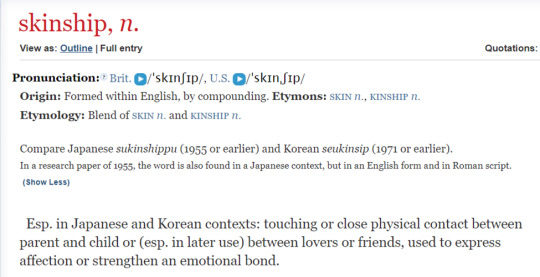
The concept of skinship isn’t directly unfamiliar to western people but is generally something that occurs between direct family members (parent-child or siblings) or between romantic couples. In East Asian culture it’s moves beyond familial and romantic bonds to include all platonic bonds as well. You can expect to see skinship practiced between any two people who are close and feel affection for each other. So, in the context of fanservice and Thai BL acting pairs, not every occurrence of skinship (hugs, holding hands, sitting especially close, playing with hair, fingers, etc.) is fanservice, but it is a tool in the fanservice armory. Given that it is a cultural norm, and that many of these actors are at least well known to each other and friendly, it is likely an easy one to enact in the name of fanservice.
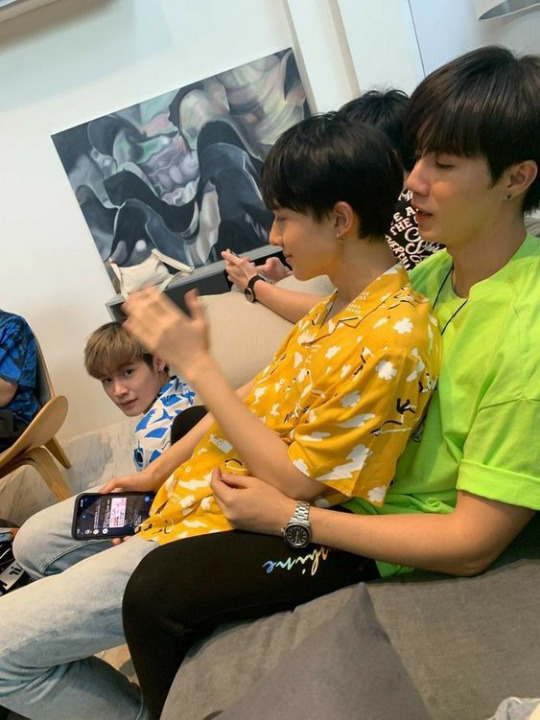
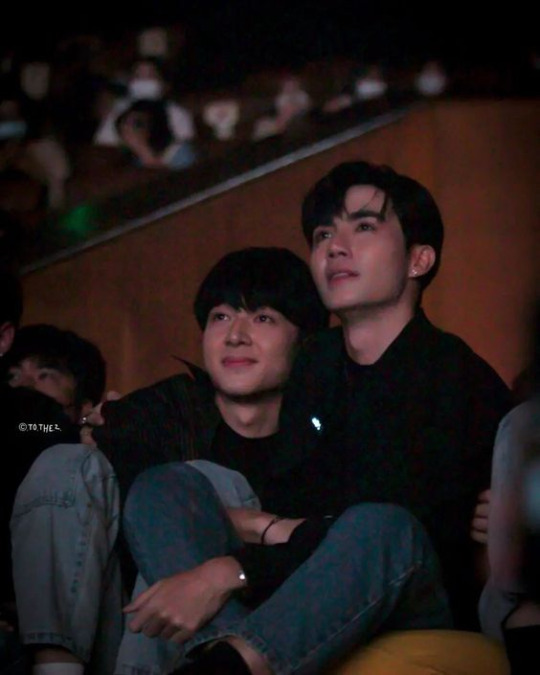
Watching these interactions through a western lens however, causes the viewer to more easily see the behavior in a romantic context. And there’s honestly a lot of factors that play into that, the biggest being ‘masculinity ideals’ where most western cultures don’t promote or encourage men to show affection outside of family (generally strictly parents or children) or romantic couples. Then you also have good ol’ homophobia, men don’t want to show too much affection towards other men for fear of being seen as gay. And this is a very broad sort of description, as the ‘norms’ for what is acceptable platonic contact will of course differ in immigrant families, or indigenous communities, or among black Americans, even just geographically. I’m just a white person speaking from their own experience and observation, though I do have the benefit of knowing, working with, and interacting with a remarkably wide variety of humans.
Why is Fanservice a ‘Problem’?
If it’s widely understood that fanservice is an extension of the acting, that it’s very often something required by contract, that it’s not an indicator of a romantic or sexual relationship, then it’s not a problem. But that’s not widely understood. And that lack of understanding or even the preference of fans to ignore that knowledge has created a problem in the Thai BL industry. We’ve watched over the last several months personal attacks on actors for ‘queerbaiting’ (which is a term intended ONLY for fictional characters), fan clubs being upset over actors going to appearances alone or without the other half of their acting pair, personal attacks on close friends of actors (very particularly female friends), and even the attacking of an employee and friend of an actor for ‘pushing the fanservice agenda’. What is intended to be cute and fun, is turning into something that is having real life negative effects, both on the actors themselves, but also people connected to these actors. It’s also spreading beyond Thai BL, with fans (mostly western fans) being upset at non-Thai actors for not engaging in fanservice.
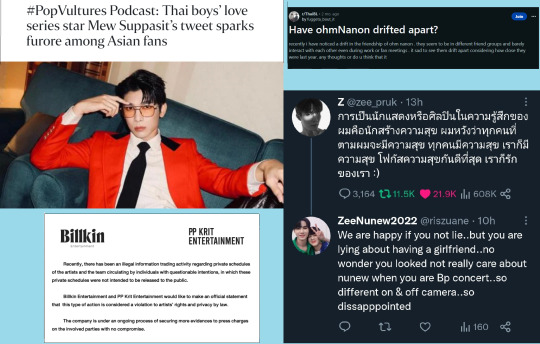
Fanservice, by virtue of it being monetizable, also indirectly exploits the Queer community. This is something that’s recognized and often brought up by western fans, as culturally, we’ve reached a point where the expectation is that Queer media will cast Queer actors in roles. This is done specifically in an attempt to help Queer actors to get more roles in the entertainment industry in general (which is a worthy goal) but is also only considered in the context that while being an out Queer person in the West is easier/safer than in many other places around the world. Many Western nations have not only marriage equality, but anti-discrimination laws that give additional protection to Queer people. And even with these laws there are still hundreds of thousands of Queer people who don’t feel comfortable being openly out in all aspects of their lives. In many East Asian countries, legal protection against discrimination is not guaranteed, and even in those countries with anti-discrimination laws, there’s often caveats. And that’s completely setting aside societal discrimination, which would be a top concern for these actors. Taking Thailand specifically, homosexuality isn’t illegal, but there are no laws in place for marriage equality or even the recognition of same-sex relationships. While there are anti-discrimination laws in place, those rest on the ability of a Queer person to PROVE discrimination, which opens its own can of worms.
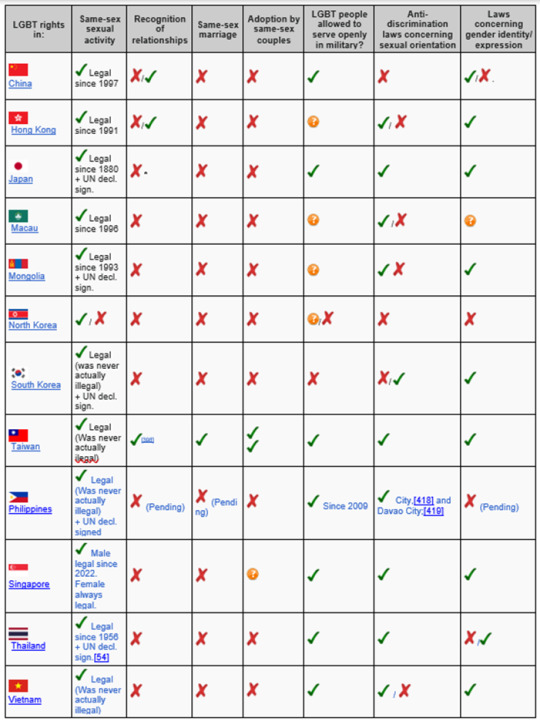
So, what I’m saying in regard to monetizing or exploiting the Queer community, is that it is understandably frustrating for actual Queer people in Thailand to see actors ‘performing’ queerness through fanservice, and being rewarded for it, while many regular citizens are living in situations where being out could be damaging to their livelihoods, cause loss of friendships or family relationships, and even put them in physical danger. Now, are some of these actors part of the Queer community? We know for certain that some are, we know for certain that some aren’t, but the vast majority we don’t have any concrete knowledge of their sexuality or Queer identity (and we are NOT entitled to it!). But it would be understandable and reasonable, given the current political and societal landscape of many of these countries, that any actor would have to very seriously consider potential ramifications of being out. Like any Queer person anywhere, there’s a laundry list of considerations that have to be addressed. Top of the list is ‘Would I be physically safe if I came out?’ but you also have to consider possible negative effects on your career, the potential limitations if you want to move outside of BL to mainstream content. We also have VERY clear examples of societal discrimination and hatred towards openly Queer actors, both from ‘local’ fans as well as international fans. But we do very often see BL actors being openly supportive of their local Queer community, promoting proactive voting in elections, and even this past week making appearances at PRIDE events. This is in addition to potential work they are doing quietly to support the community, like donating to non-profits that work to assist or advocate for Queer people, both individually and as a whole.

So, What’s the Solution?
I have no idea. I stated in the very beginning that I’m not here to give solutions. (That’s above my pay-grade.) But I do have some ideas. Now, these are not going to be the easiest for many BL fans to hear, I’m sure. They bother me too, to be honest.
I think an excellent first step is to have companies be upfront about whether fanservice is part of actor’s contracts. We know for a fact that BOC does not contractually obligate fanservice, but any other production or management company that works in BL more than likely does, though the scale and level of expectation may vary. I don’t 100% know if this would actively work, at least initially, because the actors themselves are aware that fanservice can help to raise their popularity, which enables them to be contracted for ads, sponsored social media posts, and appearances, which is how most of these actors make the majority of their money, NOT through the pay they receive for their actual acting work. So, they may perform fanservice as it’s currently known even if it’s not contractually required, but I do at least prefer the actors being in control of the level of fanservice they take part in, if any.
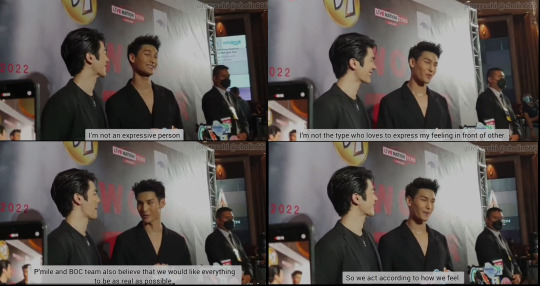
A second step, or option, is to have companies not solely send actors to events in their ‘pairs,’ and not keep them in the same pair for multiple series. I think if a company took the step and intentionally mixed up their ‘pairings’, specifically those from lead roles, then we would see less direct attachment to the ‘pairs’ and more to the actors as individuals. This could help in the long term prevent the fallout we’ve recently seen from acting pairs “breaking up,” very specifically the hateful attacks we’ve seen directed at the separate parties. But I think it could also prevent the fans from ‘choosing sides’ as I’ve also been seeing frequently in online BL spaces. In other direct online discussions, I’ve likened it to having a friend couple break up, and all of the other friends in the group essentially have to pick a side. Sometimes, you knew one person before they were a couple, and you stick with them. On occasion, one of the people will have done something terrible, and even if you knew them first, you stick with the other person. But often these are people who became your friend already a couple, and neither really did anything wrong, they just grew apart…so is it right to throw one aside in favor of the other?? Or is it more reasonable and realistic to maintain friendships with both separately? In a similar fashion, when BL pairs go their separate ways, isn’t it more reasonable to continue to follow them separately, assuming you find them both to be equally talented, versus putting one aside?
As a supplement to my suggestion of not maintaining static pairings I made this lil picker wheel with the actors at GMMTV...
…to be honest I’m quite intrigued by the idea of First and Gun. Both are phenomenal actors. I can picture the vibe of a potential story, based mostly on my desire to see Gun as a homme-fatale. PICTURE IT: Gun is a sultry assassin, beautiful and deadly, First is the ever-weary federal agent on his tail…but he begins to find an interesting connection amongst Gun’s ‘victims’, they’re all users and abusers, arguably far more detrimental to society than Gun himself. As he tracks down Gun and learns more about him…he begins to fall for him. In the end…does he stay true to the commitments he made to his country, or does he breaks those promises in favor of following his heart??
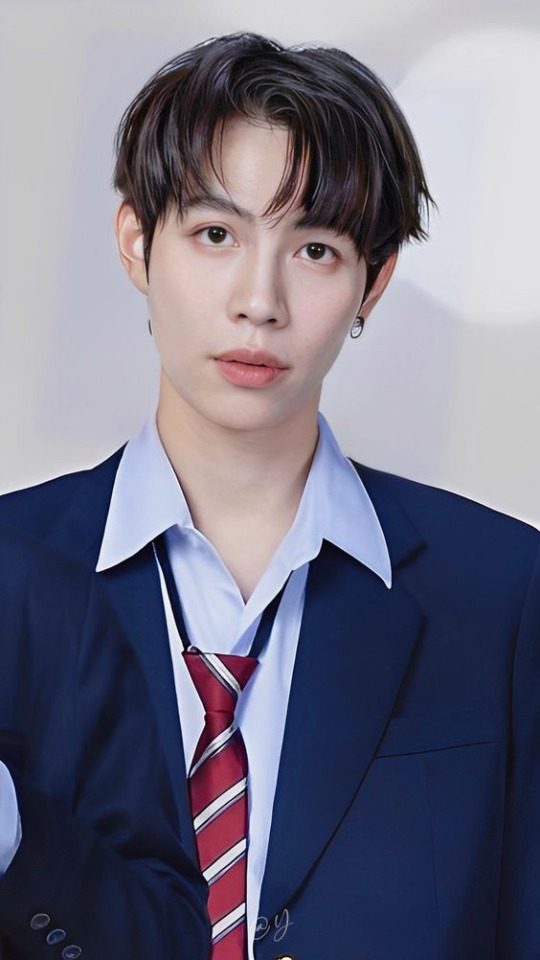
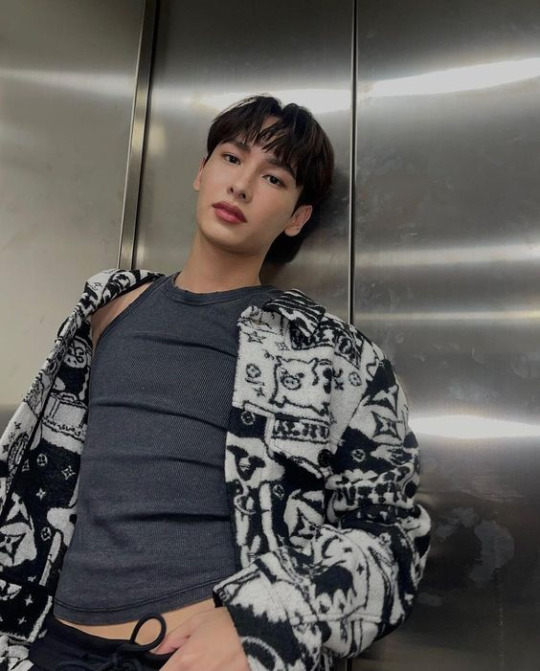
Anyway...this was 3,500 words. Hopefully some of them made sense. PLEASE share your thoughts, if you have any on this subject. I'd be especially interested if you are outside of the US.
#Thai BL#Fanservice#BL Drama#ZeeNunew#TutorYim#BillkinPP#First Kanaphan#Gun Attaphan#I don't know what other tags to put#But I hope you appreciate this#It took me 6 hours#Love Y'all#Tong Thanayut#Domundi#GMMTV#WabiSabi#Be On Cloud#Me Mind Y#Dee Hup House
68 notes
·
View notes
Text
Reading this article and comparing it to the show is very interesting, and it serves as a case study in what happens when you abandon a good/evil dynamic but don’t have anything to replace it with.
[Mild spoilers for the first three episodes of Dune: Prophesy]
Whatever subversions do or don’t come later, the original Dune novel begins with a clear reason for readers to care about what happens in the big political struggle: House Atreides are the good guys. They have noble ideals and treat others with respect. They are much better to their subjects than the Harkonans are.
Even when the politics get fuzzy, we can fall back on this as a reason to invest in the story’s outcome. We want the people who do good to triumph. When House Atreides is destroyed, we want Paul and Jessica to survive so they can get justice and/or revenge. Also, the Harkonans are gay, evil, and gayly evil, but that’s another conversation.
Prophesy doesn’t want that dynamic. Its major characters are all, at best, ruthless and Machiavellian. The selfless ones have little power and are largely at the mercy of the morally gray antiheroes.
Sounds good, so what are we giving viewers as a reason to care what happens? It’s hard to say. Maybe the stakes are that regardless of how moral the leaders are, their political moves will have ramifications for regular people, so we should care about that.
Unfortunately, the show gives us almost no context for how the political maneuvering will affect anyone beyond the people at the very top. So that’s a bust. Maybe instead, we should be invested in the characters despite their ruthless amorality? Humans are often ruthlessly amoral in real life, after all.
This has a bit more traction. We get a bunch of flashbacks that establish very tragic backstories for our two main Bene Gesserit sisters, which writers often deploy as a way to build sympathy. But for this approach to work, where we invest in a character despite them being awful, they usually have to be either relatable or funny. Think either Always Sunny or Succession.
None of the Prophecy main characters are either. They’re all stoic, power hungry elites who make grand political moves the likes of which normal people can barely comprehend. The closest any of them come to being relatable is when one of them has to sacrifice a beloved pupil for some information (or maybe not, with the latest twist).
That’s much easier to understand and at an emotional level, but it’s also not much in the face of so many flashbacks and grand political maneuvering. It’s just not enough.
Reading the interview, I think the showrunner’s actual goal is to portray the main sisters as making hard choices to avoid something even worse happening. I’m basing my interpretation largely on this quote:
“But at least some of that is their trying to guard against a greater, more devastating tragedy down the line by doing things that, in the moment, might be looked at as evil or criminal.”
If that’s indeed what they’re going for, this is actually a pretty straightforward concept that a lot of stories have employed before. The problem is that Prophesy gives us nothing about what this later tragedy might be. There’s vague foreshadowing about a disaster, but nothing about what it means in real terms.
This makes it very difficult for us to invest in the protagonists as gray antiheroes. We have no idea what they’re making all these hard choices to avoid! It looks like the show has three more episodes left, and I hope it uses that time to better establish what the stakes are.
6 notes
·
View notes
Note
do people with bpd actually want to change their behavior? every person with bpd I've known, regardless how much personal or professional education they have with bpd, have gone the same 'favorite person' route where they lovebomb and then lash out when it isn't reciprocated exactly how they want. they wield the diagnosis like a reclaimed slur and then shrug like it's out of their control -- is the diagnosis even useful if they're not seeking help to adjust these reactions? thx
kind of an interesting combination of questions you have here. First you ask if anyone with this label ascribed to them actually wants to change their behavior -- the answer, obviously, is yes, because we are talking about millions of people including myself and many other neurodivergent people who are very outspoken about wanting to learn more effective patterns of attachment.
But I suppose you already know in the most literal sense that there are BPD labeled people who don't want to be abusive or manipulative. Like, that's obvious right. you'd have to actually believe we are all boogeyman level evil to think otherwise. If you think there are categorically evil types of people who exist out in the world, and that those people just so happen to coincidentally be the people who are denied legal autonomy and personhood on a systemic level, well, you have a lot of deeper thinking to do probably that i hope you get started on soon.
But I will assume you're a reasonable person and understand that of course out of millions of human beings there must be some who have been labeled BPD who do possess the fundamental human capacity for learning new things. And what you must really be asking is if there is any hope for someone with that identifier. Again, yes. Lots of us come a pretty long way. Also the inventor of DBT Marsha Linehan has BPD so that's a pretty obvious counter example.
Interestingly, you also ask what the point is in creating a label that comes with no proven treatment and no recommended course of action -- now that is a good question that I think we all ought to consider. The same might be asked of Autism. Or NPD. Or any personality disorder. None of those have evidence based treatments.
Why do we label people with disorders we have no treatments for, and which therapists are actively trained to view as incurable? I'll let you reflect on why that might be the case. Sure doesn't seem useful or helpful to the person *with* the label put on them, does it? Who benefits from thinking some people are just *bad* ? What purpose does such a belief serve.
Of course, if you are familiar with my work and have reflected much upon it, you know I think all these labels are pretty fundamentally useless and oppressive, except as solidarity-building tools.
Some recommended reading for you:
77 notes
·
View notes
Note
As antagonist who do you think is better between Sukuna, Kenjaku, or Toji? Why? How will you rank them?
Oh this is a toughie, I honestly don't think I can rank them. They each serve such different roles, and provide different perspectives that it's hard for me to compare them in any way. Objectively, I think they're all equally good in serving their purposes.
In terms of intellect, it's Kenjaku. Strength, it's Sukuna. Toji can't best them in either but his level of cunning and versatility are amazing. But none of this matters when it comes to the overall story.
Toji is the glitch in the system, the exception who shows that at the end of the day, strength is defined in terms of jujutsu and nothing else, which is a terrible idea. He is the opposite of Gojo and therefore his downfall. His first victory against Gojo and Geto shows us that nothing is set in stone, even the strongest can fall.
Sukuna highlights the extent of sorcery's power. He is self-absorbed, everything he does is for himself and his sense of ego. This attitude is somewhat encouraged in sorcerers because otherwise you don't survive. Yuuji is the opposite, he lives for others and he might die for others as well. The rule of the ego vs. the cog in the machine. Which will prevail? Which should prevail? What is true strength and happiness? So he brings out a central theme.
Kenjaku's methods show the depravity of curses and dysfunction of jujutsu society. He's the worst of curse and human and his actions of wanting to evolve non-sorcerers shows that a) trying to keep curses hidden was a bad idea b)a society based on strength is cruel and will collapse on itself. He's a bit of an extension on Sukuna in that latter aspect. But he also shows that emotion, empathy and kindness is central to well-being of any society. He's all strategy no heart. Another contender to Yuuji's motive, but also to Yuuta. Yuuta fights for love, Kenjaku abuses it in all its forms.
I just, I can't tell. This feels impossible to rank.
7 notes
·
View notes
Text
alright friends and followers who haven't yet smashed that unsubscribe button. since the new episode jingled the bells on its jester cap in such a way that i sat pleased upon my guilded throne, i am going to offer up some proper thoughts/analysis for the first time in Like A Year. as a treat, for all of us.
i haven't been posting about new episodes for a few reasons, the main three of which are:
A) on the basis of her much-documented shady (and sometimes queerphobic) character and poor leadership over the past few years, i no longer support vivziepop. (don't argue with me in the replies about this.)
B) i don't support the type of crit culture that has made a home for itself on this website. i think it's toxic, trite, and full of bad faith actors who don't know when to log off.
C) i prefer to spend my time focusing on the things i enjoy. the hellaverse served that purpose for me for a few years, and i wanted to move on when that was no longer the case.
all that being said, i feel much more positively about the latest episode. some of these positive qualities are still unfortunately marred by the overall dip in writing quality and number of contrivances that have become endemic to the second season, but my special interests have only rarely gone away for good. helluva's faded as an interest, but i still enjoy talking about it privately, and i figure i might as well use this blog once in a while, since it's still up.
the main issue that has plagued s2 up until this point is that nothing has felt necessary or consequential. without going into great individual detail, the previous three episodes have failed to build upon what's been previously established, and have instead continued adding new elements, or delivering poignant scenes with a total lack of proper setup. the circus was unnecessary and, in fact, hurt the show and its characters by establishing that their values and goals are the same now as they were at a very young age (with the exception of fizz). seeing stars was badly paced (even for this show) and inconsistent with what had come before in terms of character writing and development. exes and oohs was a worldbuilding nightmare that exploited images and scenes of physical abuse for cheap, unearned drama, along with adding yet another recurring villain to the show's underutilized rogue's gallery. none of these episodes were even centered around the show's premise, but instead of deviating from the story engine to meaningfully develop the story or raise the stakes, the storylines have all felt tangential, and this has lent them a fanfiction-esque quality.
western energy gives me a glimmer of hope that things could get back on track, because even though it also deviates from the central premise of the show, it demonstrates a return to the show's original b-plot of goetia family drama. although it introduces new elements to the storyline, it does so in a way that pays off what came before and raises the stakes. in the harvest moon festival, striker said he would finish the job on stolas the next time he saw him, and if it hadn't been for the phone call from stella, striker would have successfully killed stolas. we see stolas use abilities that have been previously established such as his demon form and paralyzing gaze to try and fight back rather than being forgotten about for the sake of plot convenience. this makes the episode feel like a proper continuation of s1 and a meaningful moment of forward motion for the story, rather than an episode based only on an idea the writers had and thought would be cool.
striker is a particularly good example of what this episode does right, because even if his escape at the end feels cheap (and was possibly changed later in the process after the role was recast), the episode uses the tools at its disposal to develop striker's character and add a new level of mystery and intrigue that is directly tied to the show's central theme of class tension. class tension was OOZING from every episode of s1. it has been almost completely ignored in s2. the return to the development of characters around this central theme is fundamentally necessary in order to maintain a sense of identity for the show, because even if there isn't a serialized plot, there needs to be something for the show to be ABOUT. even though the b-plot with loona felt like a complete contrivance, its inclusion at least supports this theme by demonstrating how difficult it is for lower-class demons to access the resources that they need to survive. it also allows for the ending sequence to take place in the way it does, and that sequence, as a moment, was actually very effective.
i've been typing for a while and am starting to get sick of it, so i'll wrap it up.
essentially, i have more hope for the show's writing now than i've had in nearly a year, but it needs to continue following through on the basics of storytelling (such as setup and payoff) in order to meaningfully recover. i still worry that the show is only capable of compelling moments over a coherent full picture, but this episode does seem to indicate that the show hasn't lost its way entirely. while this blog won't return to its former level of activity, i'll be keeping an eye on things, and if i have more thoughts in the future, i'll offer them up here.
now take this small cowboy with you for good luck on your travels, and enjoy his radiating miasma of not-yet-wasted potential.
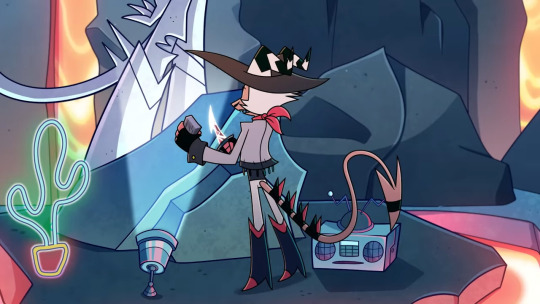
9 notes
·
View notes
Text
That's been rattling in my brain a bit. I think a big part of that was distance to the audience.
HIMYM was a pretty closed off thing. Yeah, it was big and all, but there was barely anything to grab onto and have a conversation about. Talking from a mainstream cultural perspective:
GoT had it's houses people would sort themselves into. HIMYM had Neil Patrick Harris as pretty much THE character that carried the show. Mostly because it was good enough for the rest of the cast to just bounce off of them specifically. I'd bet that more people could quote all house slogans of GoT than tell you more than one significant difference character difference between *has to check wikipedia* Ted and Marshall. Hell, I barely watched both series equally much (a few episodes at a friend's place) and even I can tell you that the House Stark had a wolf as their crest. There is a level of branding and emotional investment expected in GoT and (likely) actively avoided in HIMYM.
The second major difference is merch. GoT had merch versions of EVERYTHING. Without looking them up now, I'd wager GoT had their own Monopoly set, blind bags, funkos, maybe even a TTRPG or other niche market product. If they felt extra spicy, they might've even made a video game? What did HIMYM have in comparison? What COULD they have that would go beyond the logo so you can tell people you like the show? I can't remember ever hearing any catch phrase that entered the zeitgeist. Definitely none that I'd immediately connect with HIMYM. Fuck, Big Bang Theory at least had BAZINGA! There was no real emotional connection to the series for most watchers. And I assume, that was by design.
I'm gonna get unnecessarily deep into some real meta stuff under the cut, so if you're leaving the train here, leave with this hypothesis: HIMYM needed to stay background noise or else they could not have been producing the show for as long as they did. You wanna know what that means? Come with me into the wonderful world that lies beyond:
The big restriction of episodic TV and especially sitcom type media is you can not leave the start of the episode by the end. By which I mean, episodes are produced in a way that a casual watcher can expect the characters to be the same at the start of ep 01 and ep 126. The Simpsons could not have Bart age, the Golden Girls could not have one of them die, The Nanny could not be permanently fired/find a different job. Yes, there are some changes you can make, but those have to keep the character and central tension at the same place. The Nanny (spoiler) did at some point kinda sorta actually hook up with her boss, but it was treated as a very off-and-on relationship if memory serves. Their professional lives and power imbalance was still the biggest obstacle. Bart has to stay young to be mischievious. His pranks would hit a lot differently (both for the character and their effect on others) if he was 17 or older.
Things like this are a necessity to air the show in effective perpetuity. Any major change MUST be explainable by a sentence or two at most. Because that way, you as the audience know exactly what to expect and the writers can't stray so far out of character that the next episode's writer struggles to tell their story. That is the reality of the business of these shows: Writers, more often than not, would write individual episode scripts instead of season spanning archs.
That also makes it way easier on the actors. If you change the character or base conflict regularly, you are causing your actors to need a lot more prep to deliver the change to the needed quality. That's just not possible, since these shows generally give the actors the script the day they shoot it. Being able to act in those conditions is a very specialized skill you have to pull off. It's one of the big reasons you don't really see soap/sitcom main cast in anything else, even after the show has ended (NPH being the exception that proves the rule)
Coming back to HIMYM. They likely targeted being background noise. If I remember correctly, around the time that they began, a lot of established soaps/sitcoms were either finished or going into their last seasons. While audience tastes were changing, there was a gap in the market. A gap that could be exploited if it drew as many people into watching it regularly as possible. For that, they needed to be knowingly bland. No major edges, no big drama, no strong emotional core. They were specifically riding on two things: The titular mystery and being just interesting enough for people not to flick away when it was on.
Which is entirely opposite to GoT and why it's actually very puzzling why it washed away as it did. GoT had an incredibly dedicated and active fanbase. Yeah, the ending was shit, but that would generally mean people would be loud about it being shit. How they'd fix it, what exactly went wrong, "watch until Ep. X and then stop watching, that's a better ending". That certainly happened, but it left no mark. It's like the fans were ashamed of ever liking the show.
So, there you have it. The thoughts of someone who grew up with sitcoms and now wants to tell people how insane it actually is for sitcom characters to live for 20 minutes more-or-less Groundhog style instead of us getting a momentary glimpse into their life.
remember how utterly inescapable how i met your mother used to be with the memes and references and barney and bro code and wait for it... and then the finale was so hated it vanished overnight
49K notes
·
View notes
Text
Bad Sisters episode 2.06 "Who by Water"
I enjoyed season one- and I mean that as lukewarm as it sounds. I found it campy, the way I find a lot of UK content to be. I liked the premise and the characters and enjoyed its silliness, but at the same time, that slapstick nature took away from some of its heart. But I will say, I’ve been enamored with the Bad Sisters title sequence from the start. I love the song. I love the visuals. I’m a title sequence fiend and this was an instant top 3 for me, rivaled only by Shameless and The Office.
Season two of Bad Sisters rose to meet the quality of its title sequence (which changed its visuals to match the clues of this season’s mystery). I was wary of this show getting a second season. However I felt about it, season one wrapped itself up in a nice little bow. It’s hard not to compare this show to Big Little Lies: an adaptation of a self-contained, women-led ensemble unraveling the suspicious death of an objectively terrible man. And I was nervous about Big Little Lies’ second season as well- they had exhausted their source material and already told a complete story. When they managed to pull off something that genuinely enhanced the characters, it felt to me like a one-in-a-million success.
Sharon Horgan was trying to capture that same lightning in a bottle with this addition to Bad Sisters, and she did it without any creative input from the minds behind the original story (season one is based on a Belgian series; the season two storyline came from her alone). Having seen it all now, I can’t imagine the show ending without it. Everything that happened in these eight episodes was an incredible service to every one of its characters. Where season one was one-dimensional, season two was nuanced and surprising. Where season one was silly, season two was emotional and hard-hitting. Yet I still laughed in all the right places.

But episode 6, “Who by Water” (an ode to my beloved title sequence), is where I decided to go so far as to say that Bad Sisters is the best mystery I’ve ever seen. I was hooked by Grace’s unexpected death earlier on- truthfully, I never really liked her, and I love when a show is bold enough to abruptly kill off a main character. You don’t see that much anymore. But things got even more complicated from there.
The complete lack of dimension to The Prick served to get us on Team Garvey in season one. He looked, acted, and was exactly as terrible as they thought he was. Every new development somehow just made him even more awful. I literally could not stand him. And at the time, the show was silly enough that I didn’t have to think too hard about ethics before saying yeah! Let’s kill The Prick.
In season two, none of the new players are quite what they seem. When we first met Angelica, I thought here we go, someone new meddling in the Garvey’s lives. And she was truly obnoxious: putting her nose into Ursula’s life and Bibi’s family where it didn’t at all belong. And those unlikable qualities made the sisters- and me- completely discount her suspicion of Ian, who has seemed a perfect angel up to this point.
“Who by Water” finds the Garvey’s in the aftermath of Angelica’s fall off the boat and presumed death. It’s not sad exactly- this lady shows up and invites herself to the spreading of Grace’s ashes? Blackmailing the girls into letting her tag along? Who does she think she is? But it was genuinely an accident, and the girls are in a panic trying to figure out what to do. At the start of the episode, Ian seems level-headed and helpful. He convinces them not to go to the guards (it sounds reasonable at the time, but in retrospect- why not? It was an accident, after all). He lays out a plan: he’ll scout out the area and handle any potential footage of the girls going out on the water with Angelica and returning without her while the girls go clean Angelica’s blood off the boat.

It was around this time that I had this thought: Ian sure seems to be rolling with the punches of all this crime, despite being scared off to the point of fleeing when Grace told him about JP. I kid you not, seconds later Houlihan confronts Ian about the friend he “claimed” to have been staying with when Grace died. I was honestly floored by this. I’ve always thought that a good mystery makes you say “oh shit” when presented by twists you didn’t- but should’ve- seen coming. I’ve never before seen a mystery so perfectly and gently paced that I think I’m coming up with things on my own, when I’m really following a trail of narrative breadcrumbs so perfect that it’s imperceptible. I felt proud of myself for being suspicious of Ian, like I had thought of something no one had yet, when that was where this episode had been heading from the start.
Yet somehow, Bad Sisters lets me be a half-step ahead without ever falling behind itself. It’s Ian who suggests that Bibi move Angelica’s car out of the marina, and when the guards show up at the exact same time, she and I are now wondering in sync if Ian didn’t send her there with the intention of getting her caught. The episode closes on Bibi confronting Ian with this very suspicion, turning the whole mystery on its head and decisively acting on thoughts that for me, were still only inklings.

The Prick did some pretty calculated things but compared to Ian’s (or should I say Cormac’s) long con, he was just a small-town douchebag. Under the surface, Ian was everything he didn’t appear to be. And as we- and the Garveys- start to realize, so was Angelica. In the beginning, she’s more comparable to The Prick than anyone. Snooping, meddling, generally making problems worse. But looking back on it now, there’s a glaring difference. Where The Prick would lie and flat-out fabricate things out of thin air, Angelica only ever got in the way by being inconveniently correct. Being nosey isn’t a crime, and ultimately, her massive concussion even serves to make her endearingly silly.
Season one’s twist was who committed the crime- and it was a good one, I didn’t foresee it being Grace just like I didn’t foresee her death. But the characters didn’t change from start to finish. Everyone was who they always were and appeared to be. By season two’s finale, Ian and Angelica both had become people I wouldn’t have believed from the beginning. And it happened both shockingly and believably- a tough combo to pull off. They were exactly what this show needed as their nuance forced that same depth on the Garveys. Eva, the protector, was forced to reckon with making a massive mistake. Becka was forced to grow up in love and in life- she can’t be ‘the kid’ anymore if she’s having one. And while murdering The Prick was a no-brainer, season two forced the Garveys to actually consider the implications of being killers. Not just in terms of prison sentences and consequences, but in terms of right and wrong and the people they wanted to be.

Lastly, I’d be remiss not to mention Houlihan and Loftus. One of season one’s greatest strengths was the Claffins, and season two managed once again to create such compelling adversaries to the Garveys that I wasn’t always exactly sure whose side I was on. Focusing on the police rather than insurance raised the stakes, and Houlihan’s parallel journey mirrored the show’s eventual takeaways of doing the right thing. It wouldn’t have felt like a ‘happy’ ending if one side simply beat the other, and their eventual coming together felt narratively and emotionally sound. Some may see this season finale as a deus ex machina moment with both Loftus and Houlihan suddenly giving the girls their unconditional support, but I see it as a recognition that they all ultimately want the same thing: to be good people.
At this time, Apple hasn’t canceled or renewed Bad Sisters, but Sharon Horgan has suggested that this is the end. I’ve seen so many successful shows ruined by a network stretching it beyond its expiration date, unwilling to let go of the paycheck, so I can only hope Horgan stays strong. But hey, that’s what I said last season.
#bad sisters#sharon horgan#eva garvey#sarah greene#bibi garvey#eva birthistle#ursula garvey#eve hewson#becka garvey#grace garvey#fiona shaw#ian reilly#owen mcdonnell#anne marie duff#tv review#tv#tv criticism
0 notes
Text
Official Square Enix Mod Support
As someone who has been with this franchise since 2005, and as someone who adores the original Kingdom Hearts, I feel like I have ample credibility to state that there are officially too many versions of Kingdom Hearts. And I don't mean releases and remixes. I mean portable games that heavily recycle content from the first game. It's been happening since 2004 and I don’t think it has truly stopped. Kingdom Hearts: Chain of Memories was the first and most egregious offender when viewing the major games in the franchise. Mainly because it only served to reuse motifs from the first game. The maps of that game are procedurally generated, so you don't even get the charm of being in a Disney World. It’s just a card game based remake of the first game when viewing it on a game play level. Kingdom Hearts: 358/2 days actually had 3D worlds to explore, though none of them were as big as their Kingdom Hearts 1 counter parts. It does however benefit from having Kingdom Hearts 2 levels as well. Both of these games don’t introduce much in terms of new visual motifs, but they do have some of the best stories in the series so it’s easy for me to give them a pass. Some other games do not have that luxury.
Kingdom Hearts Coded is pretty similar to Chain of Memories as you are just going through Kingdom Hearts levels again. The twist in Chain of Memories was that you were just going through Sora’s memories. In Coded and its DS remaster Re: Coded, you are going through the data of those worlds. You play as a virtual version of Sora venturing through simulated Kingdom Hearts worlds. It reeks of a poor excuse to rehash the first game again. Yet, it's perhaps the best reuse of those assets so far and mixes things up quite a bit.
Let me be clear, I didn't not engage with this story in any capacity. I skipped every cutscene in Re: Coded. I've seen HD versions of the cutscenes years prior, I know that it would detract from my experience to sit through it all again. I wanted to be as charitable as possible, and thus only looked at the gameplay, an aspect that had a chance of not letting me down. And in terms of gameplay, it blows the other two previous two portable games out of the water. It's pretty close to feeling like the first game. It performs better than 358/2 Days and its interface is more suited to portable systems as well.
The menu in Kingdom Hearts works because there are enough buttons and options to make it work. The DS is lacking in the button department. 358/2 Days attempted to implement the action menu and it ended up being hard to navigate and I dreaded engaging with it. Chain of Memories and Re: Coded have the right idea. Simply cycling through options is as complex as the system can handle. In Chain of Memories you cycled through cards, but in Re: Coded, you cycle through commands. Commands are a simplification of any action you can do in the game that's not attacking or moving. Commands can be items, magic, and most importantly special attacks.
Kingdom Hearts has always tried to give players a way to unleash a special attack. Kingdom Hearts 1 implements Limits, High MP cost attacks that Sora can equip. The issue with this is only 1 can be equipped at a time. Chain of Memories’ version of special attacks are in the form of slates, moves which are unleashed upon using a certain combination of 3 cards. Slates are the best part of Chain of Memories and allows you to experiment with multiple special attacks at once. Unfortunately their implementation really only worked with the Chain of Memories combat, so this concept is never expand upon in the future despite being pretty fun. Kingdom Hearts 2 adds reaction commands, which are special moves that can be used as a counter to a certain enemy. They are also the best part of that game, though they can only be activated in response and not at will. Re: Coded’s command deck is the way special attacks are managed. Commands give the player the ability to pull off cool anime shit at the press of the button, but limits your use of them due to cool downs and limited space in your command deck.
The command deck works best for the portable games due it's ease of use, but it also allows more options to choose from. There are dozens of commands to choose from, and only a limited amount of slots, meaning that everyone's deck is going to look a bit different. It allows for more player expression. I still prefer the action menu, but that's because the console games are more execution heavy and tightly designed, so a wide array of permutations of actions might end up over whelming. Coded and the portable games in the future that use its mechanics are a bit looser in their encounters, so it fits better for them.
By being the one to create the command deck (though I don’t know how similar the remaster combat is to the original, All the praise I give to this game could be attributed to Birth by Sleep), Coded earns its right to exist despite adding nothing to the story or world. The gameplay outside of the combat is decent as well. The level up system being a branching tree that you need to connect together to receive bonuses was a very cool way to implement progression. Combining commands to make new ones made sure there was always value in collecting them. Auto jumping is a good addition due to how ass the camera still is coming from 358/2 Days, though as you get to the end of the game, it ends up being more of a hindrance. And to reiterate, the camera is deplorable. This game is still full of technical problems, but I think that kinda adds to the charm.
The whole of Coded takes place in a datascape. So when a tech problem arises, it sort of fits with the aesthetic of the game. Re: Coded is coated with glitch effects, fuzzy cutscenes, and nonsense fantasy tech jargon. It has those early 2000s Megaman: Battle Network vibes that I crave. I love how the glitches in the datascape are used to spice up old environments, adding more verticality to the existing design, while also mixing up parts of the levels to test your perception. I said earlier this wasn’t a remix, but it kinda of is. Just not in the meager ways the final mix games are. Coded is transformative media and if it wasn't an official game, I would argue it should be protected by fair use. It's a romhack, but a romhack that goes above and beyond. This can be seen the best by examining how it shoe horns new gameplay types into an existing scenarios. I thought I would fight the same Traverse Town boss I always fight. But I was shocked when I was suddenly playing a sidescroller. partially annoyed because it wasn't a good sidescroller, but it was overall a fun experience. Coded is filled with stiff like this. I don’t know why they made the Olympus world a turn based RPG, but they did and I respect it.
It's just weird, and that weirdness gives it soul that I wasn't expecting from a game I perceived as soulless for so long. This is a remake of a phone game. But it goes unreasonably hard. From what little the plot has to offer, the main takeaway is that anything can have heart. It’s really fitting for what this game is. If I remember correctly, Data Sora, a facsimile of the protagonist ends up having a real heart and I think the reason that’s the only thing I remember about the game’s plot is because it’s the only thing that really matters about Coded on a conceptual level. If a xerox of Sora can have a heart, then why can’t a xerox of Kingdom Hearts 1 also have one?
0 notes
Text
Let's do chapters 6-7
I didn't have time to do this last night immediately after reading, so I'll do it based on my markings. For chapter 6 we meet Genya and she walks Alina through getting ready to meet the royals (love her).
Already Alina is enjoying the benefits of the little palace and being a grisha, which she mentions the regular soldies don't have. Here though she didn't come across as salty, just enjoying herself.
Alina then mentions she's never seen a grisha wearing a white Kefta. It makes sense, as Genya's powers are very unique.
I will have to cringe very heavily at the darkling sending her in to make Alina look good to impress the king, but that's part of a much more complicated discussion.
Genya then shares beauty isn't a big deal among the grisha. It is interesting (and sad) to think that they are all playing dress up just for the royals. In that sense, the Darkling's behavior is less bothersome to me. He is just acclimatizing Alina to their reality, bad as it is.
And finaly we have a very interesting exchange when Genya brings Alina a simple outfit rather than something more fitting with royalty and the rest of the Grisha. When I was watching the show I wondered how likely it was that there were tensions between the king and Sasha before everything went down, and it seems I was right.
Genya then drops the bombshell that Alina has to walk the line so the Darkling isn't accused of treason and harboring her, which is wow. The king allows grisha to serve him as their army and grants them some level of security and luxury, but even he doesn't trust them.
She also asks Alina not to tell anyone she used her powers, as she's not allowed to do so on other grisha. It seems life at the Little Palace isn't as great as Alina thinks it is.
And then after every grisha ever fights over who gets to walk Alina to the king, the darkling shows up and overrules them all (which was like super hot or whatever).
For chapter 7 we discuss the servitude I referenced earlier, which is amazing. The Darkling tells Alina he gifted Genya to the queen, and when she's rightfully horrified he reveals (bitterly) that "we all serve someone." I've had theories since the show aired that he too was abused by the royals, so this line is very meaningful to me.
Then we get a little glimpse at his darkness.
“| hope you don’t expect fairness from me, Alina. It isn’t one of my specialties.
True, if we consider he just told Alina he gifted a person to someone else as a gift. But also true in building up for the reveal down the line.
They get to the palace and Alina questions capitalism how the rich get to live amazing lives while the rest of them struggle. It is a very good tie with the russian references this book has.
And then we have one of my favorite scenes of the show, which I think is really well adapted here. Kudos to the entire netflix cast and crew.
After that, we go meet the queen, and she is a witch very much what you'd expect from a privilleged royal woman. When Alina tells her she's an orphan she almost melts in excitement. To her, it's just a fun, moving story. To Alina, it is her life.
We get out of that, and again do we touch on the topic of servitude. As I already noticed on the other chapter, they are all playing the game in order to survive, but none of them actually like the royals.
Genya laughed, and the Darkling’s lips quirked in what was nearly a smile.
“Welcome to court,” he said.
“I’m not sure | like it.”
“No one does,” he admitted. “But we all make a good show of it.”
To finish this, we have Alina giving Genya a heart attack by refusing to wear the darkling's colors, and then refusing to play by the social rules of The Little Palace. As a darklina, I think that is exactly what draws Sasha to her. The fact she is willing to stand up to him when no one else is brave enough to.
1 note
·
View note